Literature was formed very early, even before writing appeared. Literature exists in many forms, from being transmitted by memory as in folklore genres to hieroglyphs carved in stone; literature took shape even before the human realized he was also a writer.
As a field that carries both the history and culture of the world, literature plays an essential role in everyday life. Along with the development of society, literature has also witnessed the birth of famous and outstanding writers who have become legends of world literature.
1. Jacob Ludwig Karl, Wilhelm Karl Grimm – Brothers Grimm
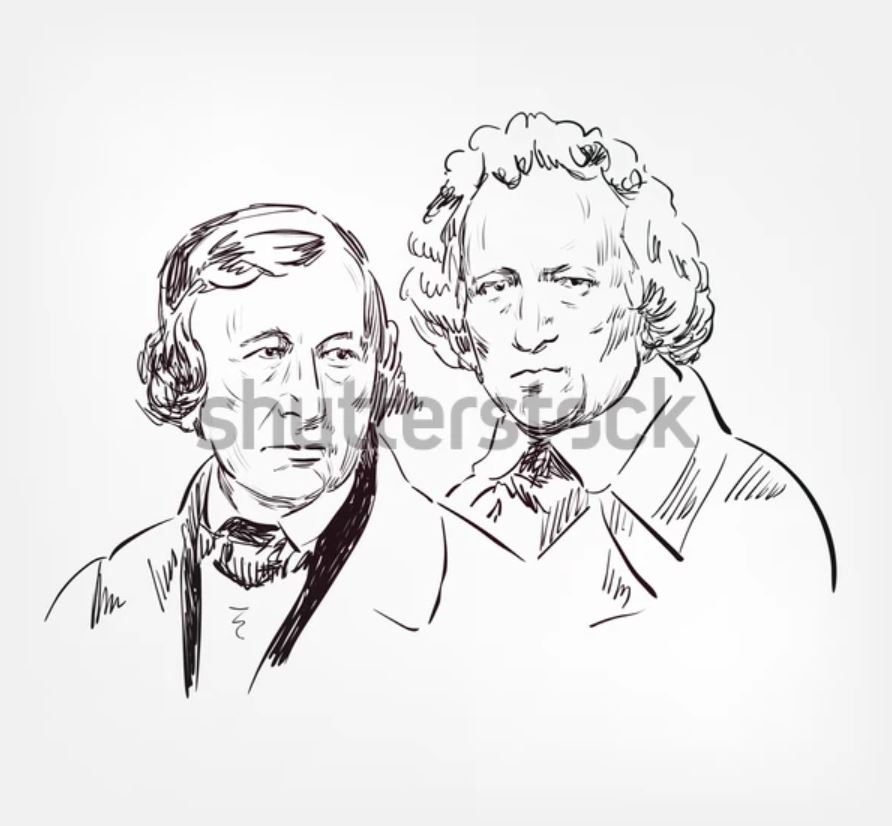
| Jacob Ludwig Karl | Information |
|---|---|
| Full Name | Jacob Ludwig Karl, Wilhelm Karl Grimm – Brothers Grimm |
| Birthdate | January 4, 1785 (Jacob), February 24, 1786 (Wilhelm) |
| Birthplace | Hanau, Landgraviate of Hesse-Kassel, Holy Roman Empire |
| Nationality | German |
| Occupation | Academics, philologists, cultural researchers, authors |
| Field of Study | Folklore, linguistics |
| Notable Works | “Children’s and Household Tales,” “German Mythology” |
| Literary Movement | Romanticism |
| Contribution | Collecting and publishing folklore, preserving German tales |
| Academic Affiliation | University of Marburg, University of Göttingen |
| Legacy | Enduring popularity of their tales, influence on literature and popular culture |
Real names: Jacob Ludwig Karl, Wilhelm Karl Grimm
Country: Germany
Date of birth – date of death: January 4, 1785 – September 20, 1863, and February 24, 1786 – December 16, 1859
Era: Late 18th century, early 19th century
Genre: Folklore, Fairy Tales
Jacob and Wilhelm Grimm are two of their father Philipp Wilhelm Grimm’s nine children. Both of them were born in a city located in the state of Hessen in Germany. When they turned 20, the Grimm brothers studied linguistics and folklore. The two Brothers Grimm have achieved outstanding achievements in fairy tales and folklore.
Through their storytelling, the Brothers Grimm created timeless classics, including “Snow White and the Seven Dwarfs,” “Sleeping Beauty,” “Little Red Riding Hood,” “The Snow Queen,” “Hansel and Gretel,” “Cinderella,” and many more.
2. William Shakespeare – The bard of Avon – The author of Macbeth
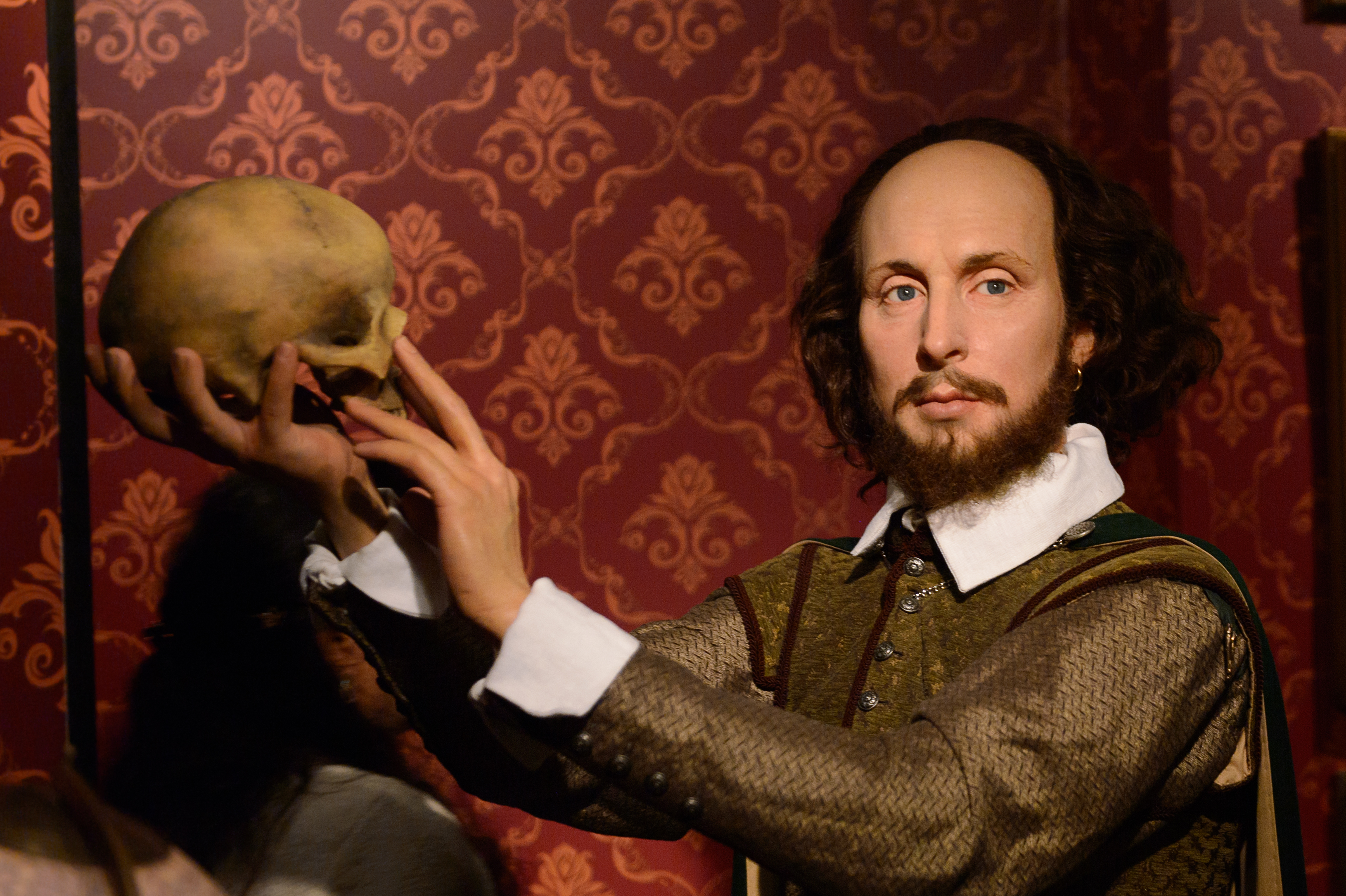
| William Shakespeare | Information |
|---|---|
| Full Name | William Shakespeare – The Bard of Avon – The Author of Macbeth |
| Birthplace | Stratford-upon-Avon, Warwickshire, England |
| Nationality | English |
| Occupation | Playwright, poet, actor |
| Known For | Greatest writer in the English language |
| Works | 39 plays, 154 sonnets, 3 long narrative poems |
| Literary Genre | Tragedy, comedy, history, tragicomedy, romance |
| Language | English |
| Era | Elizabethan, Jacobean |
| Spouse | Anne Hathaway (married in 1582) |
| Children | Susanna, Hamnet, Judith |
| Resting Place | Church of the Holy Trinity, Stratford-upon-Avon |
| Legacy | Considered the most influential writer in the English language |
Real name: William Shakespeare
Country: England
Date of birth – date of death: April 23, 1564 – April 23, 1616
Era: 16th century
Genre: History, Tragedy
Before his time, William Shakespeare, an English poet, and playwright, were often recognized as Britain’s greatest outstanding novelist and dramatist. His theatrical works fall into three categories: Comedy, Tragedy, and History, and include such classic works as Hamlet, Romeo, and Juliet, etc.
William Shakespeare is also regarded as a teacher of Western literature due to his contributions to storytelling, character development, plot, and tragedy. William Shakespeare is also regarded by linguists to have coined several new terms that were eventually included in dictionaries.
3. Lev Tolstoy – The author of War and Peace
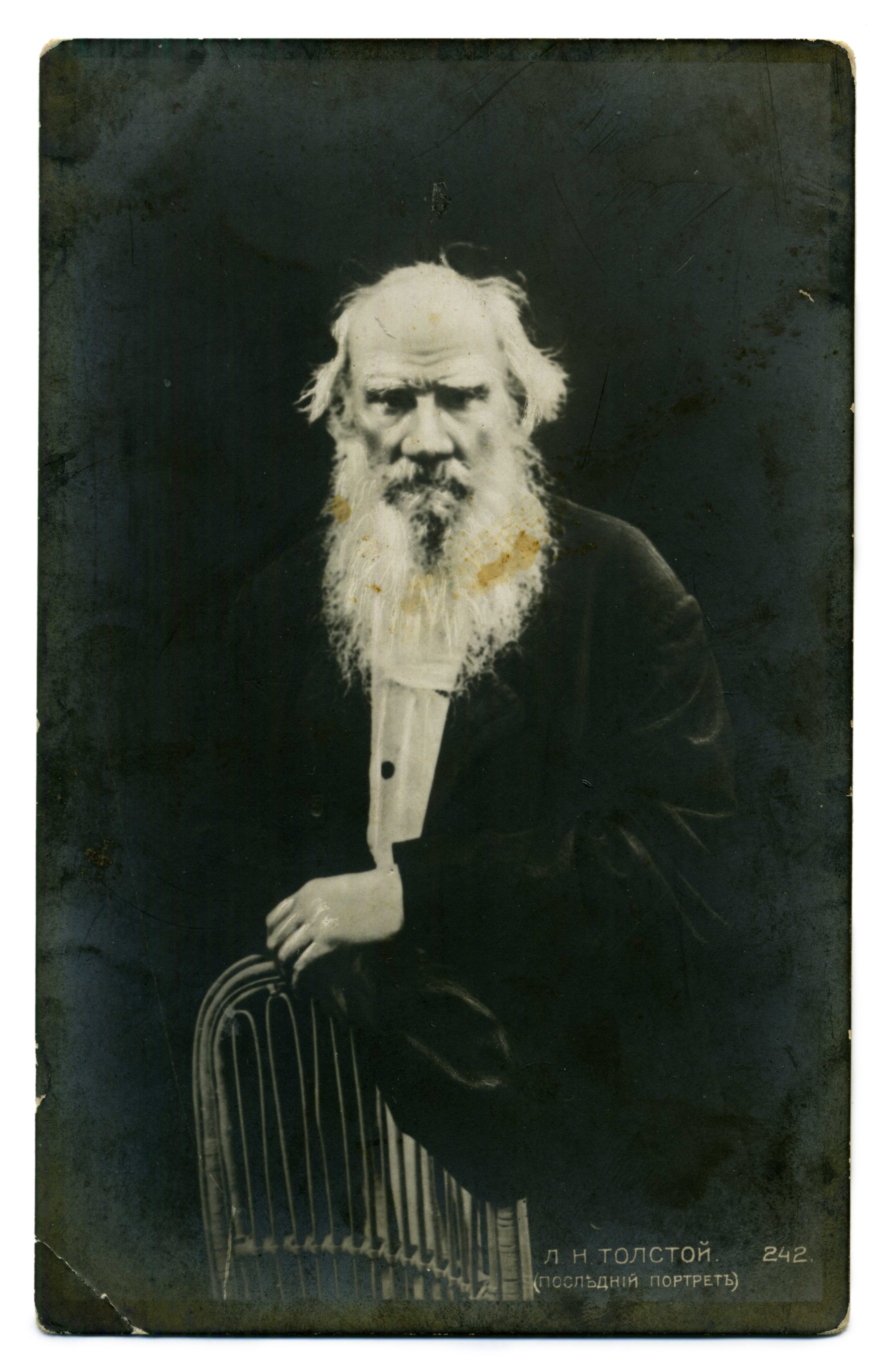
| Information | |
|---|---|
| Full Name | Lev Tolstoy – The author of War and Peace |
| Native Name | Лев Николаевич Толстой |
| Birthdate | September 9, 1828 |
| Birthplace | Yasnaya Polyana, Russian Empire |
| Death | November 20, 1910 |
| Occupation | Writer, Religious Thinker |
| Genres | Novel, Novella, Short Story, Play, Essay, Autobiography |
| Literary Movement | Realism |
| Notable Works | War and Peace, Anna Karenina, The Death of Ivan Ilyich |
| Subjects | Christian Anarchism, Pacifism |
| Language | Russian |
| Education | Studied law and oriental languages at Kazan University (incomplete) |
| Notable Awards | Griboyedov Prize (1892) |
| Spouse | Sophia Behrs (married in 1862) |
| Children | 13 |
| Influence | Inspired Mahatma Gandhi and Martin Luther King Jr. |
| Beliefs | Christian Anarchism, Nonviolent Resistance |
| Significance | Regarded as one of the greatest authors of all time |
| Political Philosophy | Nonviolence, Spiritual Anarchism |
| Founding | Established schools for peasants’ children |
| Legacy | Nobel Prize in Literature nominee, Nobel Peace Prize nominee |
| Family History | Descendants live in various countries |
| Notable Descendants | Vladimir Tolstoy (Director of Yasnaya Polyana museum), Pyotr Tolstoy (Russian journalist and TV presenter), Fyokla Tolstaya (Russian journalist and host) |
| Literary Influence | Considered one of the giants of Russian literature |
| Personal Life | Married Sophia Behrs, renounced wealth and copyrights |
| Early Works | Autobiographical novels Childhood, Boyhood, and Youth |
| Spiritual Awakening | Profound moral crisis and subsequent transformation |
| Philosophical Writings | Explored ideas of nonviolence and Georgism |
| Military Experience | Served as a young artillery officer in the Crimean War |
| Geographical Influences | Trips to Europe, meeting Victor Hugo |
| Educational Initiatives | Founded schools for peasants’ children, contributed to democratic education theory |
Real name: Lev Nikolayevich Tolstoy
Country: Russia
Date of birth – date of death: August 28, 1828 – November 20, 1910
Era: 19th century
Genre: Social Realism, pacifism, anarchism
Count Lev Tolstoy was a great Russian Christian writer who advocated pacifism and anarchism.
Anna Karenina and War and Peace established Lev Tolstoy as the most influential Russian author, surpassing Pushkin, Dostoevsky, and Anton Chekhov. Time magazine placed these two masterpieces first and third among the 100 most remarkable books.
The former chancellor of Oxford University claims that Lev Tolstoy was the finest writer of the 19th century. The Guardian of the United States likewise selected Lev Tolstoy as the best author.
4. Charles Dickens – The author of A Tale of Two Cities
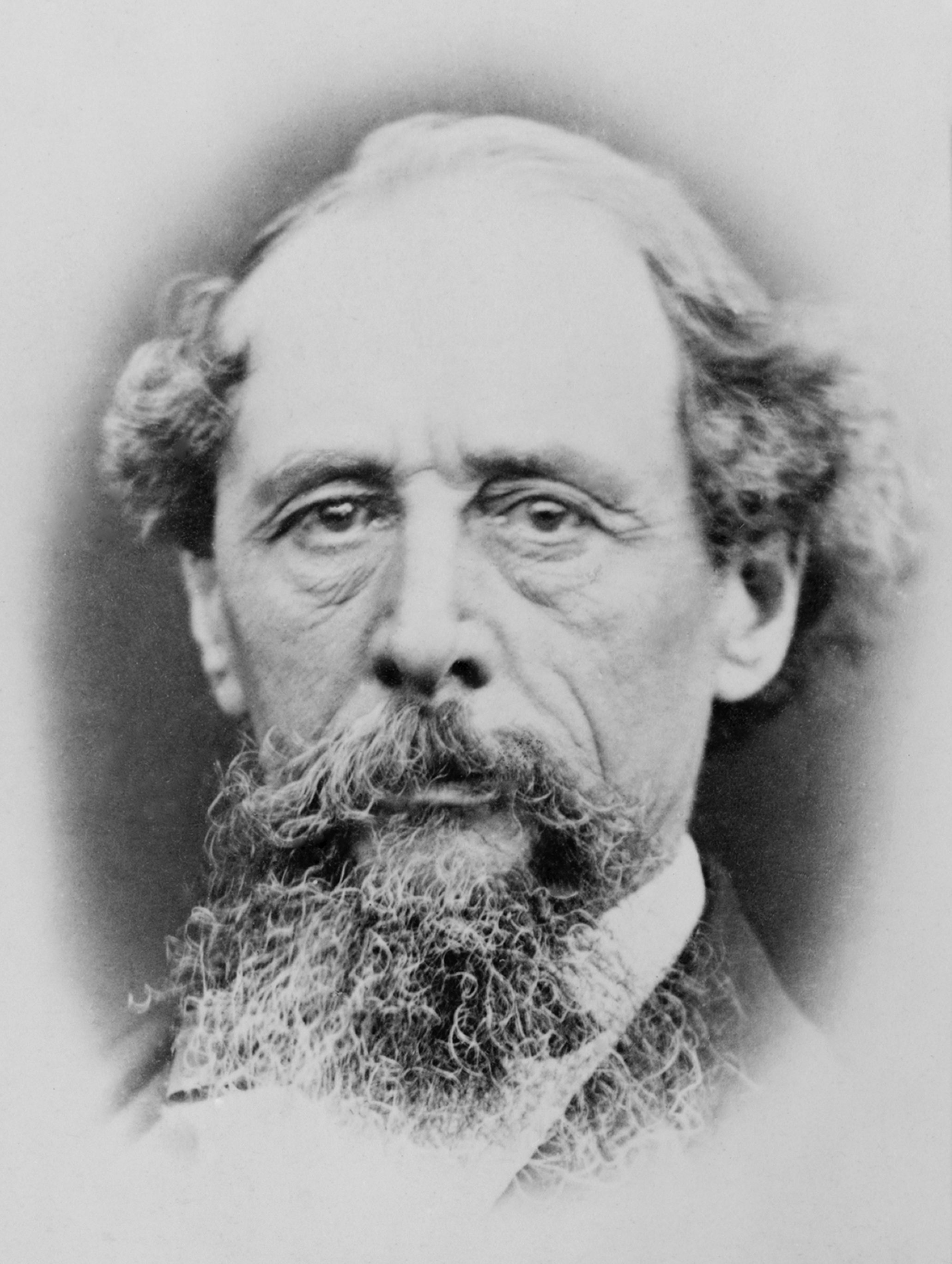
| Charles Dickens | Information |
|---|---|
| Full Name | Charles Dickens – The author of A Tale of Two Cities |
| Birthdate | 7 February 1812 |
| Birthplace | Portsmouth, England |
| Occupation | Writer |
| Notable Works | The Pickwick Papers, Oliver Twist, Nicholas Nickleby, A Christmas Carol, David Copperfield, Bleak House, Little Dorrit, A Tale of Two Cities, Great Expectations |
| Spouse | Catherine Thomson Hogarth |
| Children | Charles Dickens Jr., Mary Dickens, Kate Perugini, Walter Landor Dickens, Francis Dickens, Alfred D’Orsay Tennyson Dickens, Sydney Smith Haldimand Dickens, Henry Fielding Dickens, Dora Annie Dickens, Edward Dickens |
| Literary Genius | Regarded as the greatest novelist of the Victorian era |
| Social Critic | Criticized social and working conditions, campaigned for children’s rights and social reforms |
| Serial Publication | Pioneered the serial publication of narrative fiction |
| Contributions | Advocated for education and social reforms |
| Childhood | Born in Portsmouth, England |
| Early Success | Editor of a weekly journal for 20 years |
| Cultural Impact | His works continue to inspire adaptations in various artistic forms |
| Legacy | Widely recognized as a literary genius |
Real name: Charles John Huffam Dickens
Country: England
Date of birth – date of death: February 7, 1812-June 9, 1870
Era: 19th century
Genre: Children, Adventure, Reality, Short Story
Charles Dickens was born to a family of common civil workers in a neighborhood of Portsmouth, Hampshire, England. He was a court stenographer, a reporter for the Morning Star, and the creator of the Daily News in 1846.
Charles Dickens began writing in 1833, and his name quickly spread throughout Europe. He is considered the greatest novelist in the English language and the most famous writer of the Victorian era.
5. Victor Hugo – The author of Les Misérables
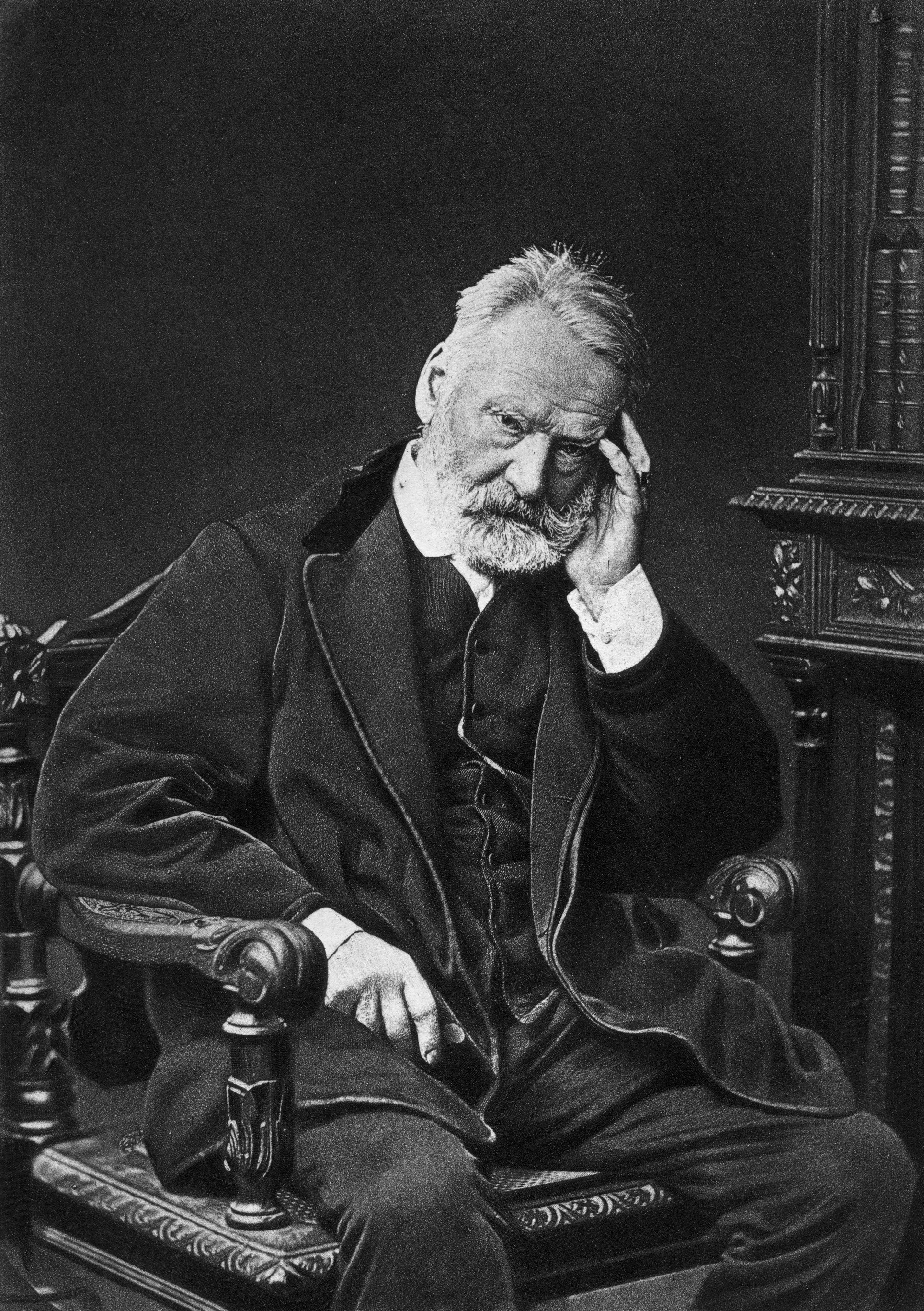
| Victor Hugo | Information |
|---|---|
| Full Name | Victor Hugo |
| Portrait | Portrait by Étienne Carjat, 1876 |
| Birthdate | 26 February 1802 |
| Birthplace | Besançon, Franche-Comté, France |
| Nationality | French |
| Occupations | Romantic Writer, Politician |
| Notable Works | The Hunchback of Notre-Dame, Les Misérables |
| Literary Career | More than sixty years |
| Genres | Novel, Poetry, Drama |
| Influential Plays | Cromwell, Hernani, Ruy Blas |
| Artistic Inspirations | Opera Rigoletto, Musicals Les Misérables, Notre-Dame de Paris |
| Political Engagement | Deputy and Senator |
| Political Views | Evolved from royalist to passionate supporter of republicanism |
| Spouse | Adèle Foucher (m. 1822; died 1868) |
| Children | 5 |
| Resting Place | Panthéon, Paris |
| Parents | Joseph Léopold Hugo, Sophie Trébuchet |
| Social Causes | Abolition of capital punishment |
| Legacy | Considered one of the greatest French writers of all time, national hero |
Real name: Victor Hugo
Country: France
Date of birth – date of death: February 26, 1802 – May 22, 1885
Era: 19th century
Genre: Romanticism, French Revolution, Social Politics
Victor Hugo has a crucial role in the history of French literature. He is a poet, writer, playwright and thinker, and politician typical of France in the 19th century. His works span and wide in many fields such as lyric poetry, romantic plays, social novels, romantic novels, etc.
He was also a representative figure of Romanticism in Europe. Victor Hugo’s works are bold, “Art for life’s sake,” with clearly depict social life at that time, showing morality, human love as well as radical political thought, and democracy to oppose the feudal and royalist ideology that was covering France and Europe at that time.
6. Mark Twain – The author of The Adventures of Tom Sawyer
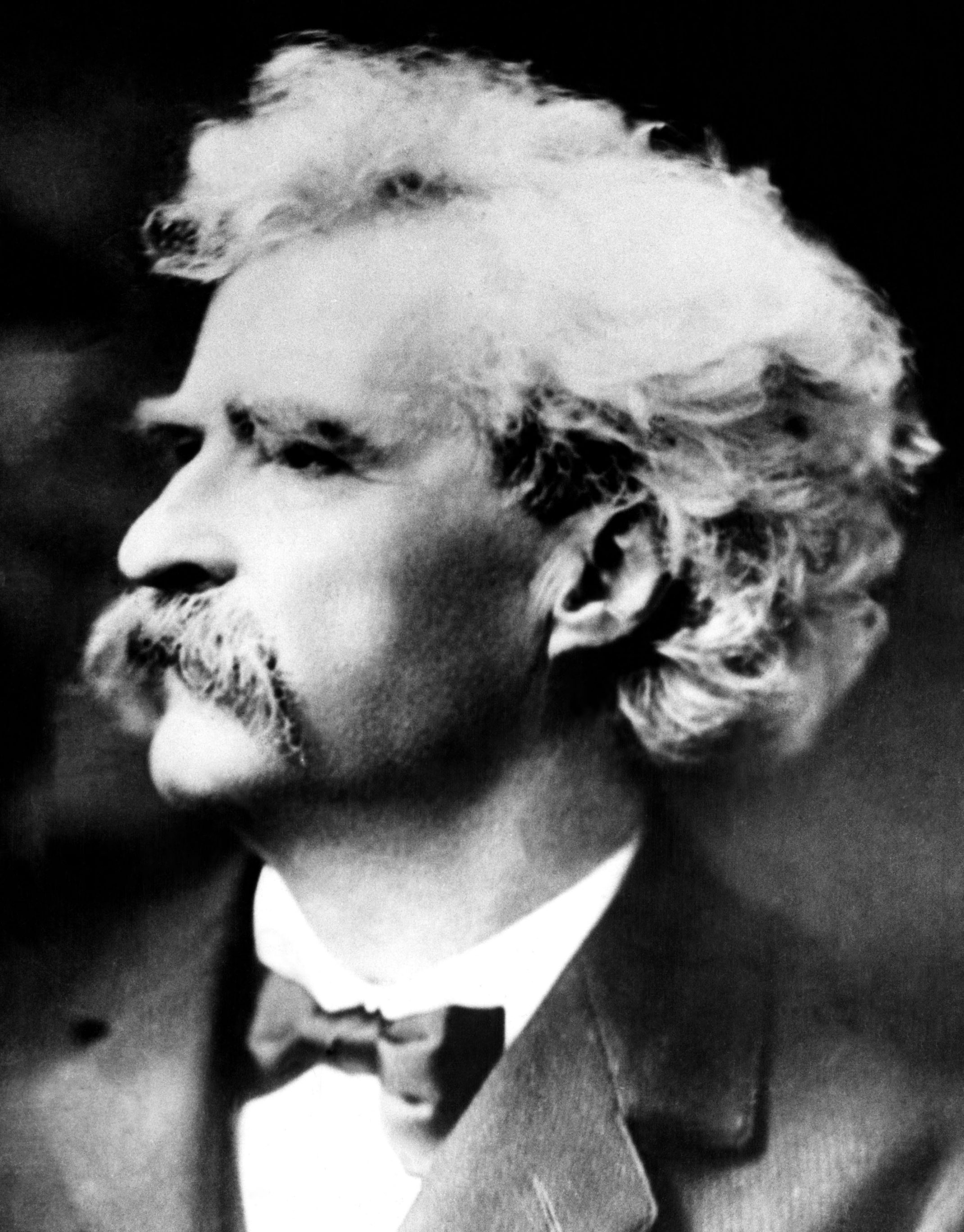
| Mark Twain | Information |
|---|---|
| Full Name | Mark Twain (Samuel Langhorne Clemens) |
| Birthdate | November 30, 1835 |
| Birthplace | Florida, Missouri, U.S. |
| Occupation | Writer, humorist, entrepreneur, publisher, lecturer |
| Literary Works | The Adventures of Tom Sawyer, Adventures of Huckleberry Finn, A Connecticut Yankee in King Arthur’s Court, Pudd’nhead Wilson |
| Genres | Adventure fiction, speculative fiction, travelogue, opinion journalism, literary criticism, polemic, essay, autobiography, correspondence, oration |
| Literary Achievements | Praised as the “greatest humorist the United States has produced,” referred to as the “father of American literature” |
| Significant Novel | Adventures of Huckleberry Finn (often called the “Great American Novel”) |
| Education | Self-educated through public libraries |
| Spouse | Olivia Langdon (married in 1870) |
| Children | 4, including Susy, Clara, and Jean |
| Parents | John Marshall Clemens (father), Jane Lampton Clemens (mother) |
| Residences | Hannibal, Missouri (inspiration for his novels), Buffalo, New York |
| Financial Challenges | Experienced bankruptcy but overcame with the help of Henry Huttleston Rogers |
| Legacy | Considered one of the greatest American writers, influential in shaping American literature and humor |
Real name: Samuel Langhorne Clemens
Country: America
Date of birth – date of death: November 30, 1835 – April 21, 1910
Era: 19th century
Genre: Fable, satire, satire
If in the 19th century there was Victor Hugo in France, Charles Dickens in England, and Lev Tolstoy in Russia, then the United States, although being born late, eventually became the world’s top literary force. Mark Twain is the first literary superstar in our nation.
Mark Twain‘s style of satire, conversational writing, and skillful socio-psychological description have contributed to the fight against superstitious customs, feudal thought, domination, and incredibly racist policies against black people in America during the era of slavery in this country.
7. Alexander Pushkin – The author of Eugene Onegin
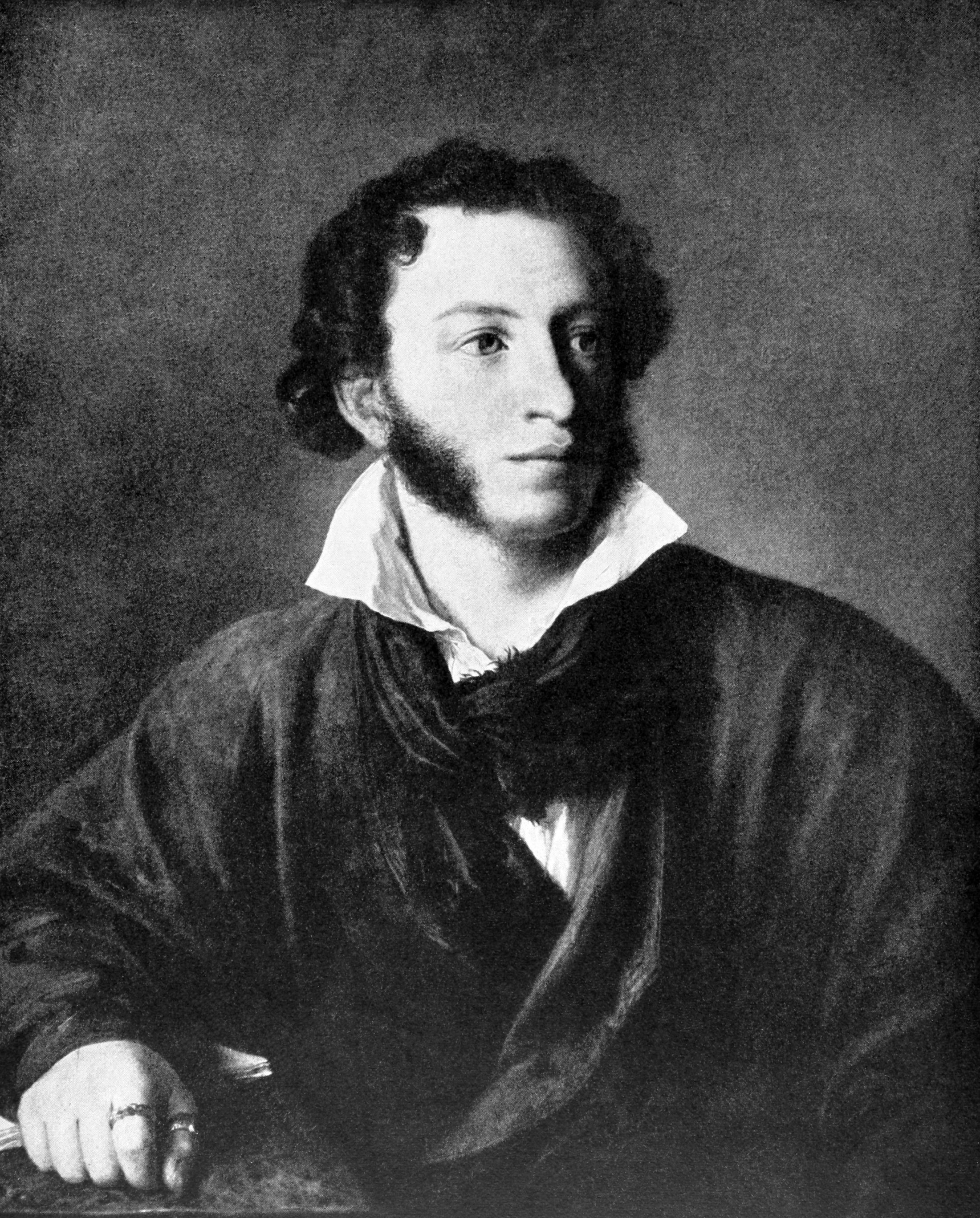
| Information | |
|---|---|
| Full Name | Alexander Sergeyevich Pushkin |
| Native Name | Александр Сергеевич Пушкин |
| Birthdate | 6 June 1799 |
| Birthplace | Moscow, Russian Empire |
| Nationality | Russian |
| Occupation | Poet, playwright, novelist |
| Language | Russian |
| Alma Mater | Tsarskoye Selo Lyceum |
| Period | Golden Age of Russian Poetry |
| Genre | Novel, novel in verse, poem, drama, short story, fairytale |
| Literary Movement | Romanticism, realism |
| Notable Works | Eugene Onegin, The Captain’s Daughter, Boris Godunov, Ruslan and Ludmila |
| Spouse | Natalia Pushkina |
| Children | 4 |
| Father | Sergey Lvovich Pushkin |
| Mother | Nadezhda (Nadya) Ossipovna Gannibal |
| Portrait | Portrait by Orest Kiprensky, 1827 |
| Influences | French Enlightenment, Alexander Petrovich Kunitsyn |
| Political Activism | Committed to social reform, joined the Filiki Eteria |
| Exile | Exiled to his mother’s estate from 1824 to 1826 |
| Famous Play | Boris Godunov |
| Fatal Duel | Fatally wounded in a duel with Georges-Charles de Heeckeren d’Anthès |
| Legacy | Considered the greatest Russian poet and the founder of modern Russian literature |
Real name: Aleksandr Sergeyevich Pushkin
Country: Russia
Date of birth – date of death: 06/06/1799 – 10/02/1837
Era: Early 19th century
Genre: Romance, Epic, Reality
Alexander Pushkin was a renowned poet who was revered as “the father of Russian poetry.” Tolstoy, Dostoevsky, Chekhov, and Nikolai Ostrovsky, among others, regard Pushkin to be their progenitor and inspiration. Primarily committed to literary language, he is an icon of 19th-century Russian romantic literature. 37-year-old Pushkin was killed in a firefight with a tsarist cavalry commander.
8. Marcel Proust – The author of In Search of Lost Time
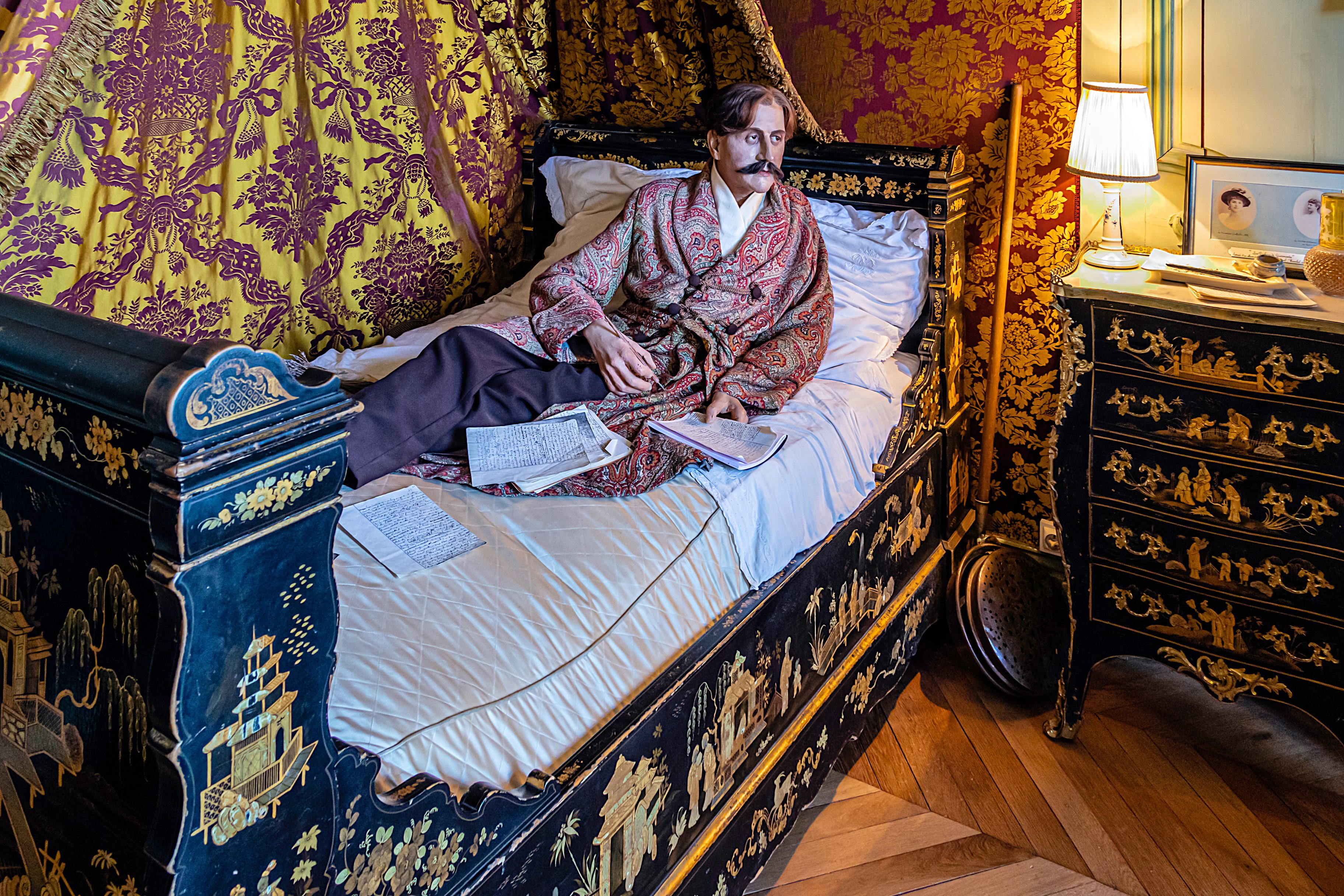
| Marcel Proust | Information |
|---|---|
| Full Name | Marcel Proust – The author of In Search of Lost Time |
| Birthdate | July 10, 1871 |
| Birthplace | Auteuil, Paris, France |
| Nationality | French |
| Occupations | Novelist, literary critic, essayist |
| Notable Work | In Search of Lost Time (À la recherche du temps perdu) |
| Education | Lycée Condorcet |
| Parents | Adrien Achille Proust, Jeanne Clémence Weil |
| Relatives | Robert Proust (brother) |
| Religious Affiliation | Raised as Catholic, later became an atheist |
| Sexuality | Homosexual |
| Influence on Literature | Considered one of the most influential authors of the 20th century |
| Literary Movements | Belle Époque, French Modernism |
| Themes in Writing | Memory, Time, Social class, Love, Art, Homosexuality |
| Writing Career | Started writing and publishing from an early age |
| Significant Works | Les plaisirs et les jours, In Search of Lost Time |
| Political Views | Supportive of the French Third Republic, critical of extremism and bigotry |
| Health Condition | Suffered from asthma and various health issues |
| Death | November 18, 1922 (age 51), Paris, France |
| Burial | Père Lachaise Cemetery, Paris |
Real name: Valentin Louis Georges Eugène Marcel Proust
France
Date of birth – date of death: July 10, 1871 – November 18, 1922
Era: Late 19th century, early 20th century
Genre: Autobiographical Fiction, Introspection, Impressionism
Marcel Proust is a French novelist, translator, and author of the seven-part novel In Search of Lost Time, which is practically his sole notable work. In Search of Lost Time has been an enormous success, being voted 8th by Time magazine on its list of the most outstanding books.
He was considered by writer Graham Greene (The Quiet American) as “the greatest writer of the 20th century” and “writers born in the late 19th century and early 20th century hardly avoid two sources of images. Great Influence: Proust and Freud”
9. J. R. R. Tolkien – The author of The Lord of the Rings
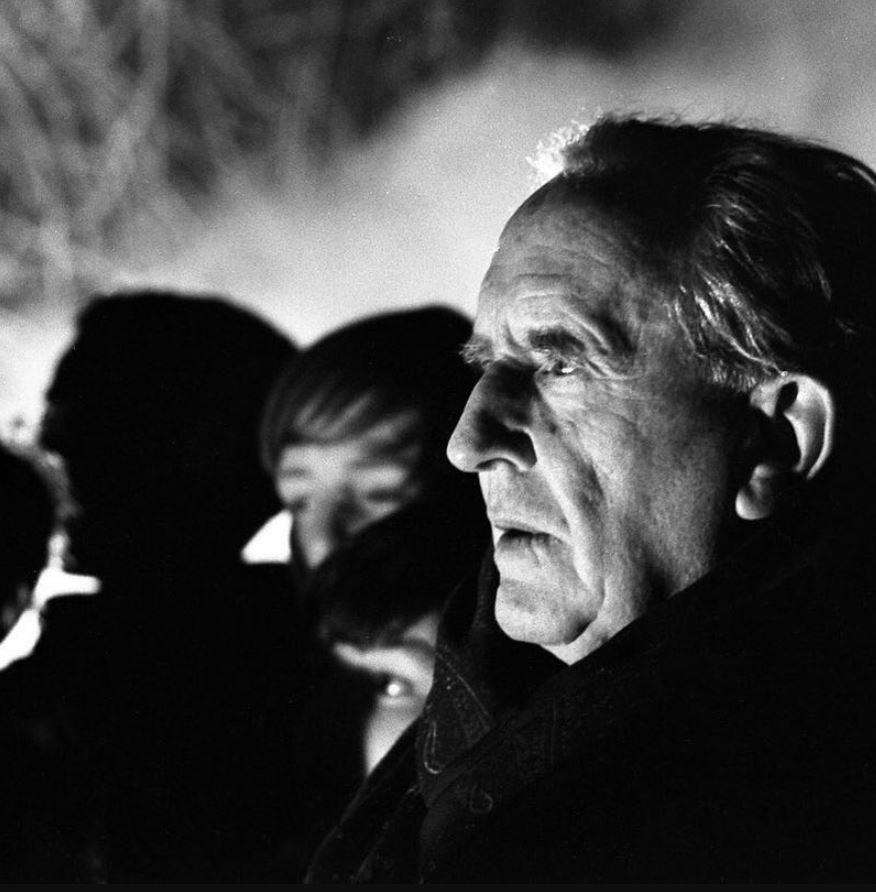
| J R R | Information |
|---|---|
| Full Name | J. R. R. Tolkien – The Author of The Lord of the Rings |
| Birthdate | January 3, 1892 |
| Birthplace | Bloemfontein, Orange Free State |
| Nationality | English |
| Occupation | Writer, Philologist |
| Notable Works | The Hobbit, The Lord of the Rings |
| Academic Positions | Rawlinson and Bosworth Professor of Anglo-Saxon, Merton Professor of English Language and Literature |
| Academic Affiliation | University of Oxford |
| Literary Circle | Member of The Inklings (with C. S. Lewis) |
| Honors and Awards | Commander of the Order of the British Empire (CBE) |
| Genre | High Fantasy, Mythopoeia |
| Published Works | The Silmarillion, The Hobbit, The Lord of the Rings |
| Family | Spouse: Edith Bratt; Children: John Francis, Michael Hilary, Christopher John, Priscilla Anne |
| Ancestry | German and English descent |
| Place of Residence | Birmingham, England |
| Languages | Proficient in Latin, created fictional languages |
| Inspirations | Andrew Lang’s Fairy Books, George MacDonald’s works |
| Impact | Regarded as the “father” of modern high fantasy literature |
| Death | September 2, 1973, Bournemouth, England |
| Legacy | Influenced a resurgence in the fantasy genre |
Real name: John Ronald Reuel Tolkien
Country: England
Date of birth – date of death: January 3, 1892 – September 2, 1973
Era: 20th century
Genre: Fantasy, Legendarium
J. R. R. Tolkien is a British author who fought in World War I and taught linguistics at Oxford University. The world of Middle-Earth in the works of The Lord of the Rings and The Hobbit that he created has a tremendous amount of history, geography, language, race, etc., making it he became the most fantastic author of fantasy literature, and the world he created was called Legendarium; there was even a study of that world, called Tolkienology.
10. George Orwell – The author of Animal Farm
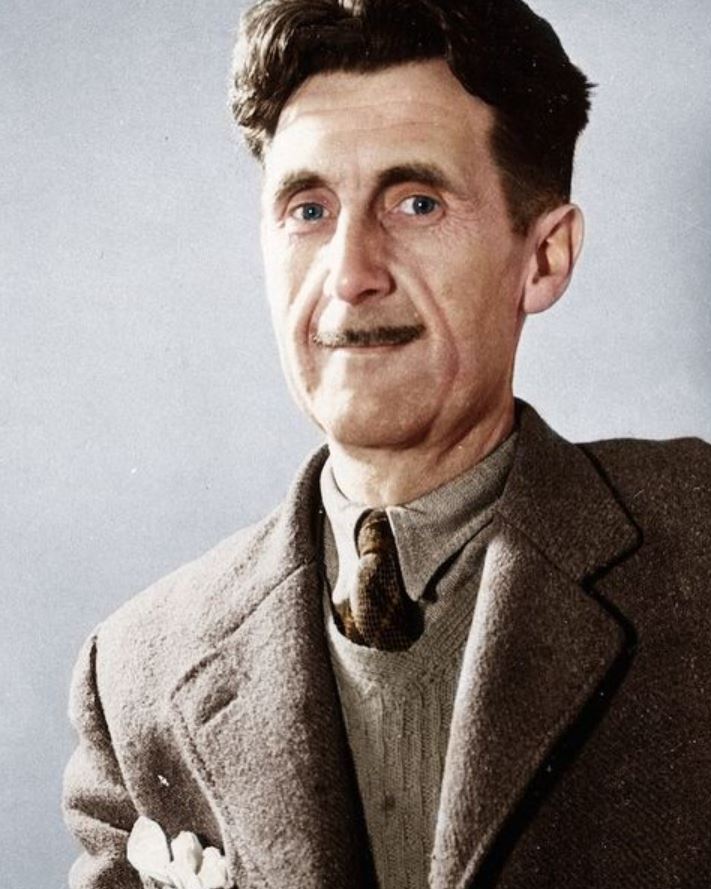
| George Orwell | Information |
|---|---|
| Full Name | George Orwell – The author of Animal Farm |
| Birthdate | 25 June 1903 |
| Birthplace | Motihari, Bengal, British India |
| Nationality | English |
| Education | Eton College |
| Occupations | Novelist, essayist, journalist, critic |
| Writing Style | Lucid prose, social criticism |
| Political Views | Opposition to totalitarianism, support of democratic socialism |
| Notable Works | Animal Farm, Nineteen Eighty-Four |
| Literary Contributions | Allegorical fiction, dystopian novels, literary criticism, poetry, polemical journalism |
| Key Non-Fiction Works | The Road to Wigan Pier, Homage to Catalonia |
| Professional Background | Former Imperial policeman in Burma |
| Influences | H.G. Wells |
| Famous Neologisms | “Big Brother,” “Thought Police,” “Newspeak,” “doublethink” |
| Recognition | Ranked second among “The 50 greatest British writers since 1945” by The Times |
| Legacy | Orwellian as an adjective to describe totalitarian practices |
Real name: Eric Arthur Blair
Country: England
Date of birth – date of death: June 25, 1903 – January 21, 1950
Era: 20th century
Genre: Politics, Society
George Orwell was a renowned English author and journalist and one of the 20th century’s most acclaimed authors.
George Orwell was born into a “lower middle class” family. He joined the police force in Burma (when it was part of the United Kingdom), battled the Nazis in Spain, and worked as a guard, teacher, and journalist.
Animal Farm (1984) are literary classic on politics against Soviet Communism, especially Stalin. George Orwell has always advocated for the people and democracy, so he firmly believed in Democratic Socialism in Northern Europe.
11. Franz Kafka – The author of The Metamorphosis
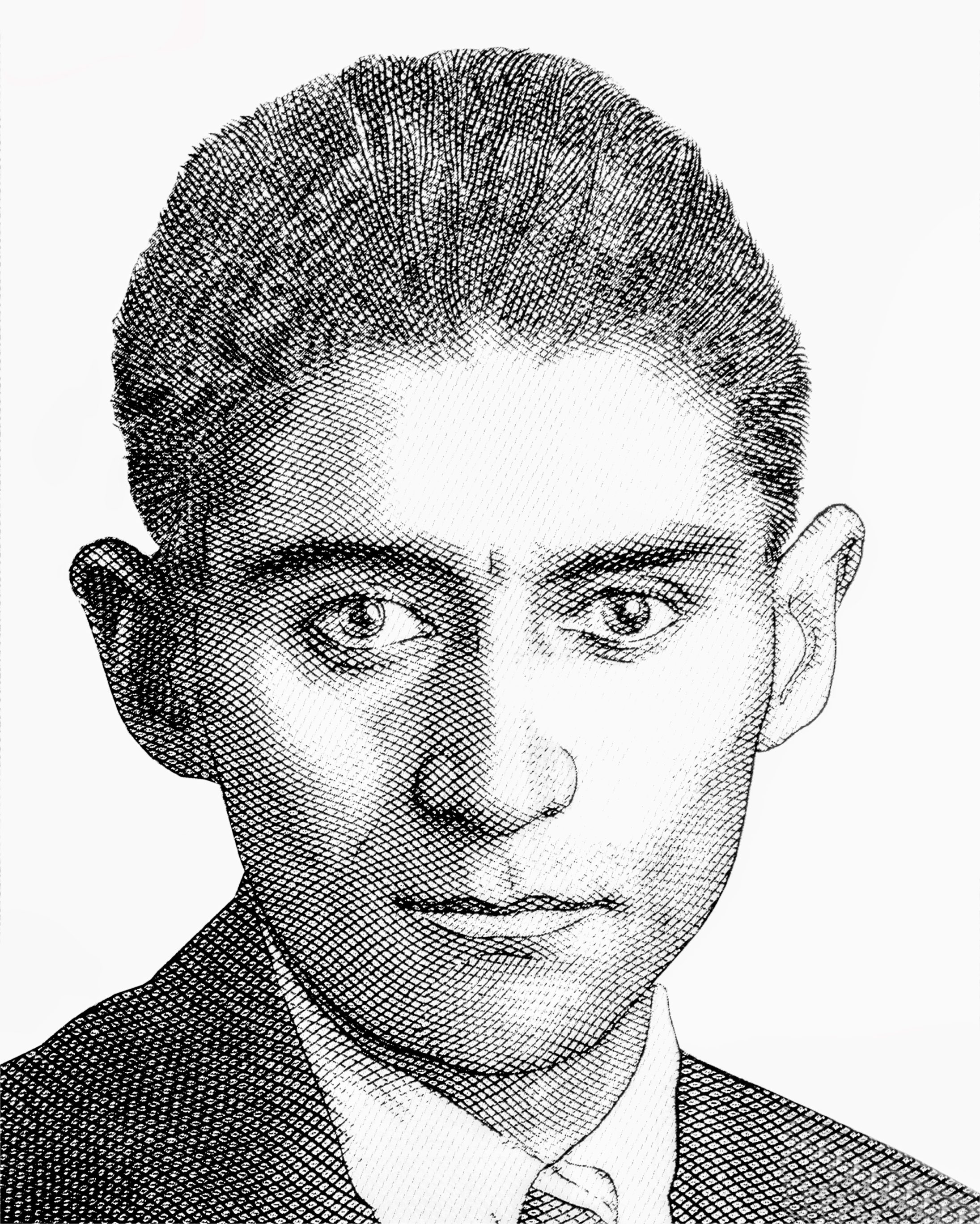
| Franz Kafka | Information |
|---|---|
| Full Name | Franz Kafka – The author of The Metamorphosis |
| Birthdate | 3 July 1883 |
| Birthplace | Prague, Kingdom of Bohemia, Austria-Hungary |
| Died | 3 June 1924 (aged 40), Kierling, Lower Austria, Austria |
| Resting Place | New Jewish Cemetery, Prague-Žižkov |
| Citizenship | General Austrian citizenship, Czechoslovakia |
| Alma Mater | German Charles-Ferdinand University |
| Occupations | Novelist, short story writer, insurance officer |
| Notable Work | The Metamorphosis, The Trial, The Castle |
| Literary Style | Fusion of realism and the fantastic |
| Themes Explored | Alienation, existential anxiety, guilt, absurdity |
| Major Contributions | Major figure of 20th-century literature |
| Influence | Coined the term “Kafkaesque”; influenced various fields |
| Writing Habits | Prolific writer; wrote mostly at night |
| Personal Struggles | Persistent self-doubt; burned majority of his work |
| Childhood | Raised in a middle-class German-speaking Jewish family |
| Education | Studied law and completed a degree in law |
| Employment | Worked as an insurance officer and law clerk |
| Relationship Status | Engaged multiple times but never married |
| Death | Died at the age of 40 from tuberculosis |
| Language Skills | Fluent in German and Czech; primarily wrote in German |
| Close Friend | Max Brod, literary executor and lifelong friend |
Real name: Franz Kafka
Country: Czech Republic
Date of birth – date of death: 03/07/1883 – 03/06/1924
Era: Late 19th century, early 20th century
Genre: Irrational Literature, Social Psychology, Surrealism
Franz Kafka, a German-language novelist of Austro-Hungarian descent, is regarded by critics as one of the most important writers of the 20th century.
Frequently, his writings are bizarre, illogical, and an introduction to Existentialism. In his will, Franz Kafka instructed his close friend Max Brod to burn any unfinished writings, but Max Brod edited and released the text.
The works published after Franz Kafka’s death are called Final Editions, including two of Franz Kafka’s three typical works, The Trial, The Castle; other is Amerika which made Franz Kafka’s name during his lifetime.
12. Dostoevsky – The author of Crime and Punishment
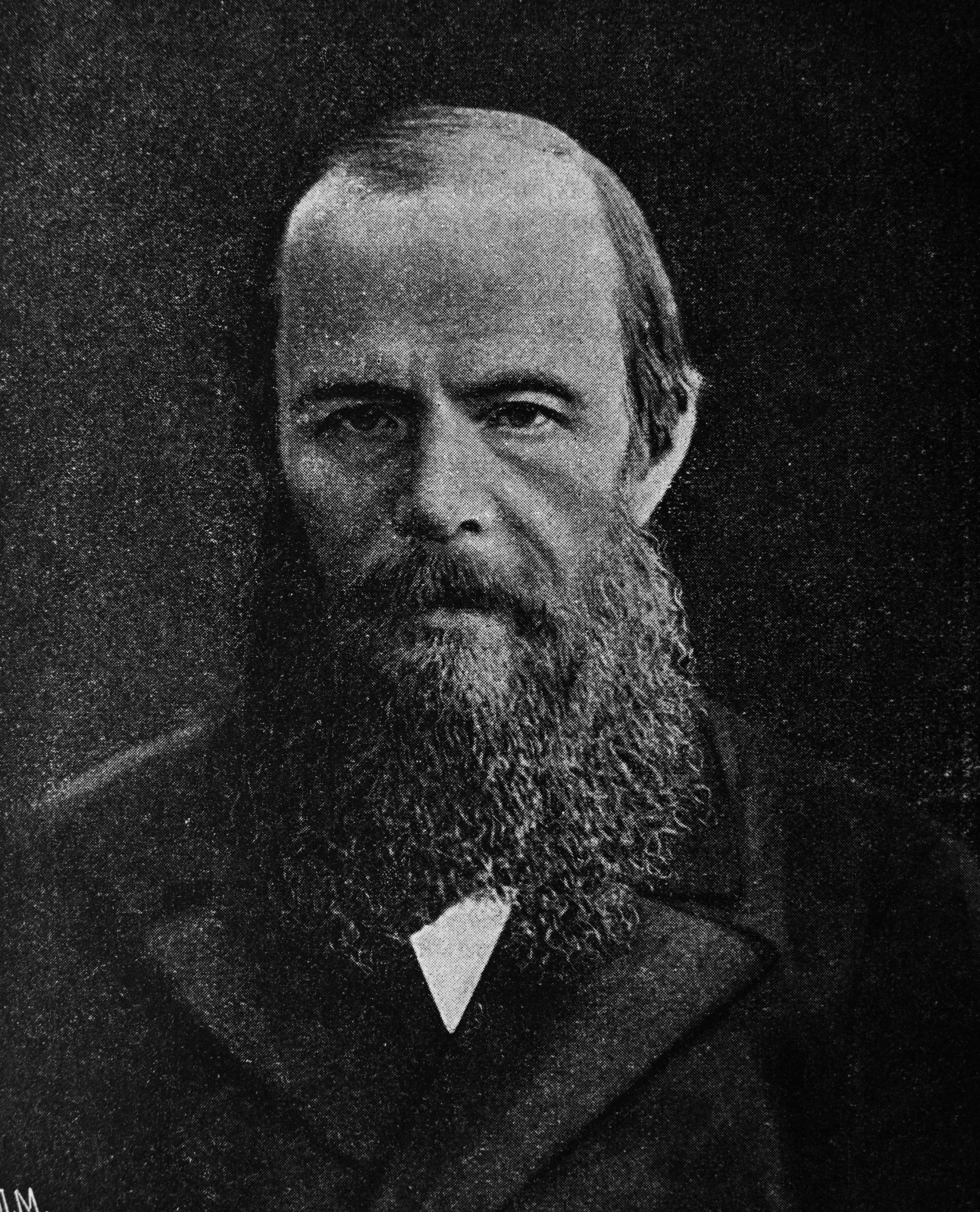
| Fyodor Dostoevsky | Information |
|---|---|
| Full Name | Fyodor Dostoevsky |
| Native Name | Фёдор Михайлович Достоевский |
| Born | 11 November 1821, Moscow, Russian Empire |
| Died | 9 February 1881, Saint Petersburg, Russian Empire |
| Occupation | Novelist, short story writer, essayist, journalist |
| Language | Russian |
| Education | Nikolayev Military Engineering Institute |
| Notable Works | Crime and Punishment, The Idiot, Demons, The Brothers Karamazov |
| Literary Movement | Realism, naturalism |
| Influences | Widely regarded as one of the greatest novelists in world literature, influenced writers globally |
| Translations | Works translated into over 170 languages |
Real name: Fyodor Mikhailovich Dostoyevsky
Country: Russia
Date of birth – date of death: November 11, 1821 – February 9, 1881
Era: 19th century
Genre: Social Psychology, Social Politics, Social Realism, Existentialism
Dostoevsky, along with Lev Tolstoy, is two of the greatest Russian writers of the 19th century. Critics highly regard him, most of whom see him as the founder or herald of existentialism.
In Russia, after the October Revolution, Dostoevsky’s works were not recognized, and it was not until 1972 that Dostoevsky was re-recognized and appreciated adequately in his homeland.
13. Goethe – The author of Faust
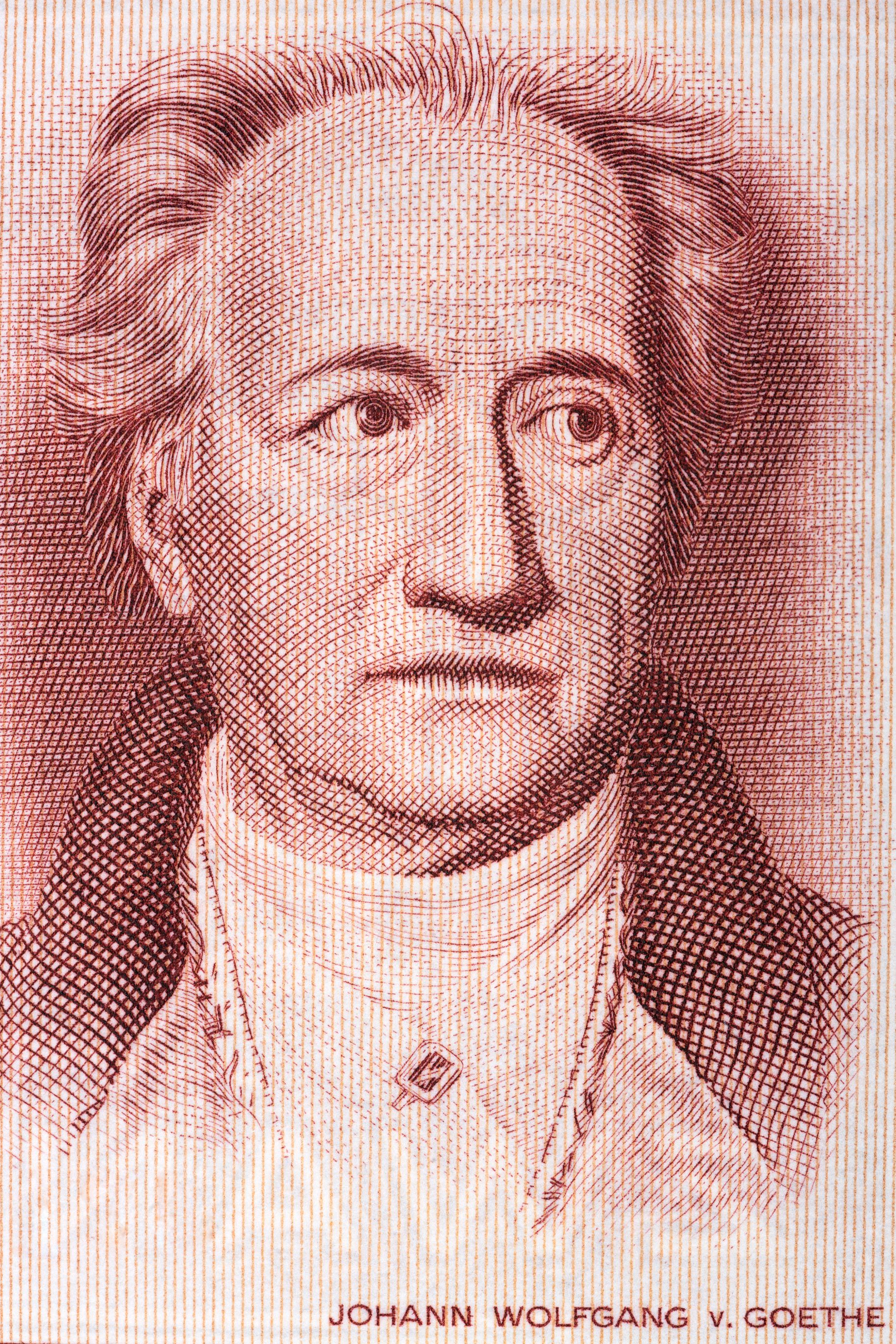
| Goethe The | Information |
|---|---|
| Full Name | Goethe – The author of Faust |
| Birthdate | August 28, 1749 |
| Birthplace | Free Imperial City of Frankfurt, Holy Roman Empire |
| Nationality | German |
| Occupation | Poet, playwright, novelist, scientist, statesman, theatre director, critic |
| Language | German |
| Education | Studied law at Leipzig University and University of Strasbourg |
| Literary Movement | Sturm und Drang, Weimar Classicism, Romanticism in science |
| Notable Works | Faust, The Sorrows of Young Werther, Wilhelm Meister’s Apprenticeship, Elective Affinities, and more |
| Contributions | Influential writer in the German language; significant influence on Western literary, political, and philosophical thought |
| Residence | Weimar, Grand Duchy of Saxe-Weimar-Eisenach |
| Achievements | Ennobled by the Duke of Saxe-Weimar, Karl August |
| Relationship Status | Married to Christiane Vulpius (1806-1816) |
| Children | 5 (4 died young), including August von Goethe |
| Parents | Johann Caspar Goethe, Catharina Elisabeth Textor |
| Additional Information | Widely regarded as the greatest and most influential writer in the German language; made significant contributions to poetry, literature, aesthetic criticism, and scientific fields; played a key role in the Weimar Classicism movement; known for his friendship with Friedrich Schiller; considered one of the greatest novelists in history |
Real name: Johann Wolfgang von Goethe
Country: Germany
Date of birth – date of death: August 28, 1749 – March 22, 1832
Era: Late 18th century, early 19th century
Genre: Enlightenment, Romanticism
Goethe is one of the most brilliant great individuals in global literature since, in addition to being a writer and poet, he is also a dramatist, scientist, and painter.
Goethe’s most famous work is Faust, with two parts composed in the form of poetic drama, considered the pinnacle of world literature. Goethe is a familiar figure in German literature, bringing literature out of the Weimar classical school.
14. Voltaire – Writer behind Letters on the Quakers
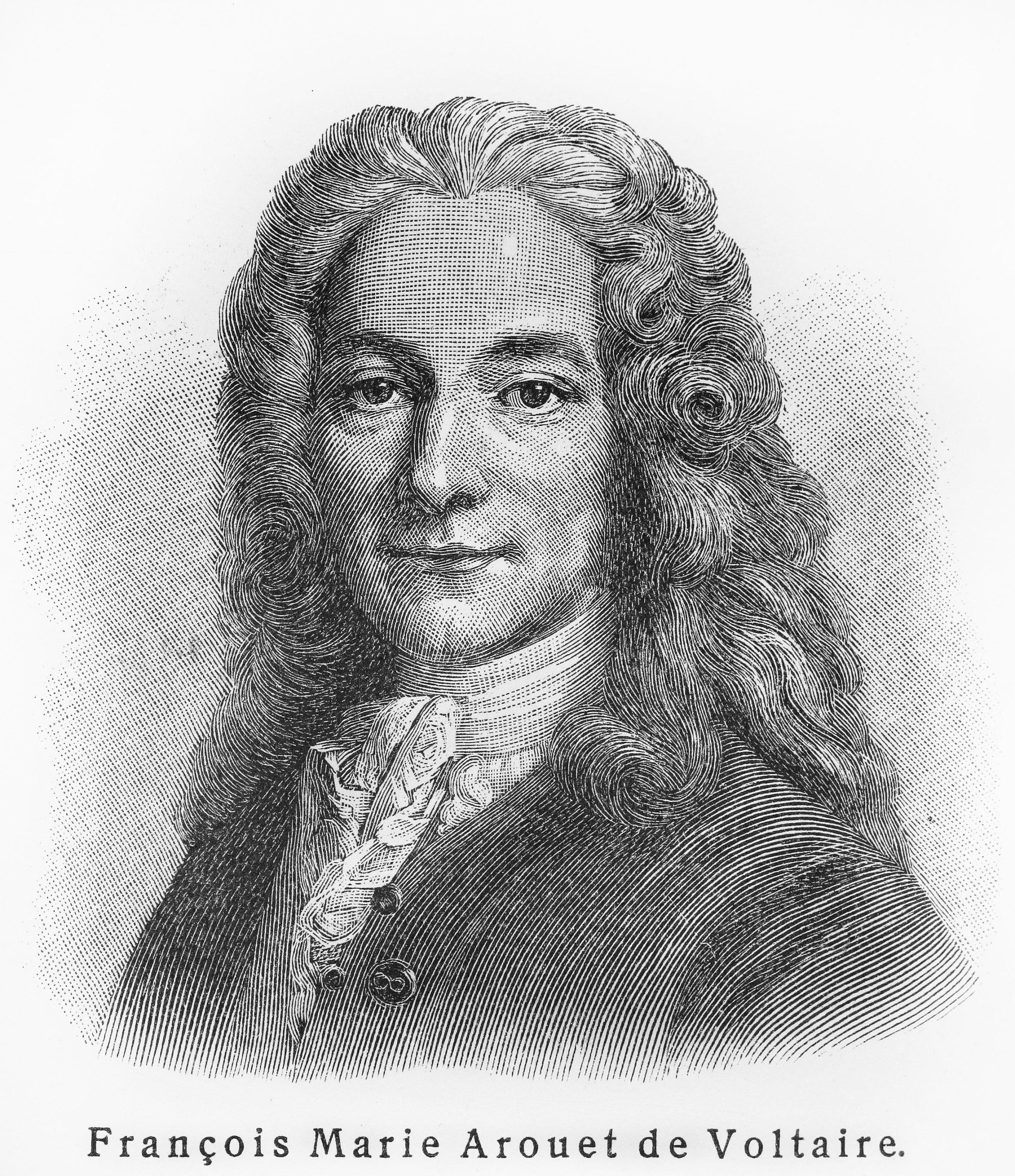
| Voltaire Writer | Information |
|---|---|
| Full Name | Voltaire – François-Marie Arouet |
| Portrait | Portrait by Nicolas de Largillière, c. 1720s |
| Birthdate | 21 November 1694 |
| Birthplace | Paris, Kingdom of France |
| Occupation | Writer, Philosopher, Historian |
| Education | Collège Louis-le-Grand |
| Literary Movement | Enlightenment, Classicism |
| Notable Works | Candide, The Maid of Orleans, The Age of Louis XIV |
| Genres | Fiction (novella, short story, tragedy, poetry) Non-fiction (essays, histories) |
| Subjects | Religious intolerance, freedom of speech, separation of church and state |
| Influences | Francis Bacon, Pierre Bayle, Jacques-Bénigne Bossuet, Miguel de Cervantes, Plato, Cicero, Émilie de Chatelet, Confucius, Pierre Corneille, Epicurus, Homer, Gottfried Wilhelm Leibniz, John Locke, Lucian, Lucretius, Jean Meslier, Molière, Isaac Newton, Alexander Pope, Jean Racine, William Shakespeare, Ibn Tufail, Virgil |
| Influenced | Vissarion Belinsky, Jeremy Bentham, Jorge Luis Borges, Lord Byron, Catherine the Great, Emilie de Chatelet, Denis Diderot, Gustave Flaubert, Frederick the Great, William Godwin, Johann Wolfgang von Goethe, Alexander Herzen, Kermani, Christopher Hitchens, Victor Hugo, Karl Marx, Napoleon, Friedrich Nietzsche, Thomas Paine, Jean-Jacques Rousseau, Percy Bysshe Shelley, David Strauss, Mary Wollstonecraft |
| Famous Ideas | Advocacy for freedom of speech, freedom of religion, separation of church and state, criticism of religious dogma and intolerance |
| Notable Achievements | Renowned writer, extensive collection of works, advocate for civil liberties |
Real name: Francois-Marie Arouet
France
Date of birth – date of death: November 21, 1694 – May 30, 1778
Era: 17th century
Genre: Epic, History, Enlightenment
Voltaire was a renowned writer, poet, theologian, and philosopher of the 17th century. Born in Paris to a family of mandarins and nobles, he was educated by Jesuits and was fluent in Greek, Latin, English, Italian, and Spanish.
Despite coming from a family of lords and mandarins, he was hostile to the French feudal court as well as the Church. Voltaire is considered the most influential philosopher then, even though his thought was full of prejudices such as racism, contempt for the bourgeoisie, and no respect for democracy, etc., later criticized by Victor Hugo in Les Miserables.
However, it can be said that Voltaire is a great writer who understood history and epics, especially having a strong influence on the later Enlightenment.
15. Ernest Hemingway – The author of For Whom the Bell Tolls
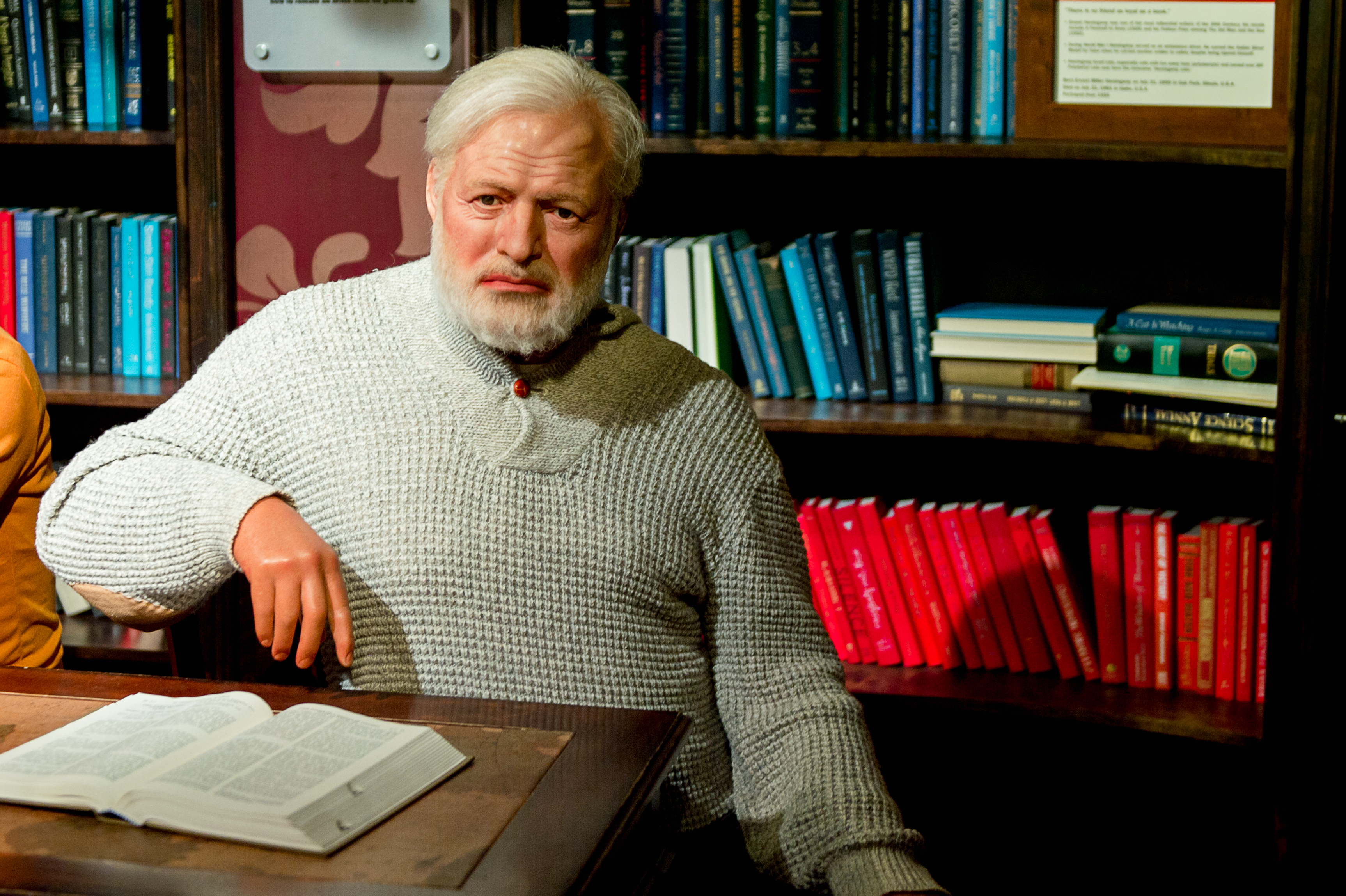
| Ernest Hemingway | Information |
|---|---|
| Full Name | Ernest Hemingway – The author of For Whom the Bell Tolls |
| Born | July 21, 1899, Oak Park, Illinois, U.S. |
| Died | July 2, 1961, Ketchum, Idaho, U.S. |
| Notable Works | The Sun Also Rises, A Farewell to Arms, For Whom the Bell Tolls, The Old Man and the Sea |
| Notable Awards | Pulitzer Prize for Fiction (1953), Nobel Prize in Literature (1954) |
| Spouses | Hadley Richardson, Pauline Pfeiffer, Martha Gellhorn, Mary Welsh |
| Children | Jack, Patrick, Gloria |
Real name: Ernest Miller Hemingway
America
Date of birth – date of death: July 21, 1899 – July 2, 1961
Era: 20th century
Genre: War, Romance
Ernest Hemingway is a French-American author who was a member of the “Lost Group” – the generation of young people who lived through the First World War. Hemingway invented the phrase “Lost Generation” and made it a household term.
Using the famed “iceberg technique” in writing, Ernest Hemingway has become the greatest contemporary American author. Many believe Ernest Hemingway to be even better than F. Scott Fitzgerald, author of The Great Gatsby, despite the fact that the two are close friends. Ernest Hemingway’s “iceberg principle” is a literary masterpiece and one of his most renowned writings.
In 1954, Ernest Hemingway was awarded both the Pulitzer Prize and the Nobel Prize in Literature for The Old Man and the Sea. Ernest Hemingway committed himself with a shotgun at his house in 1961.
16. Arthur Conan Doyle – The author of Sherlock Holmes series
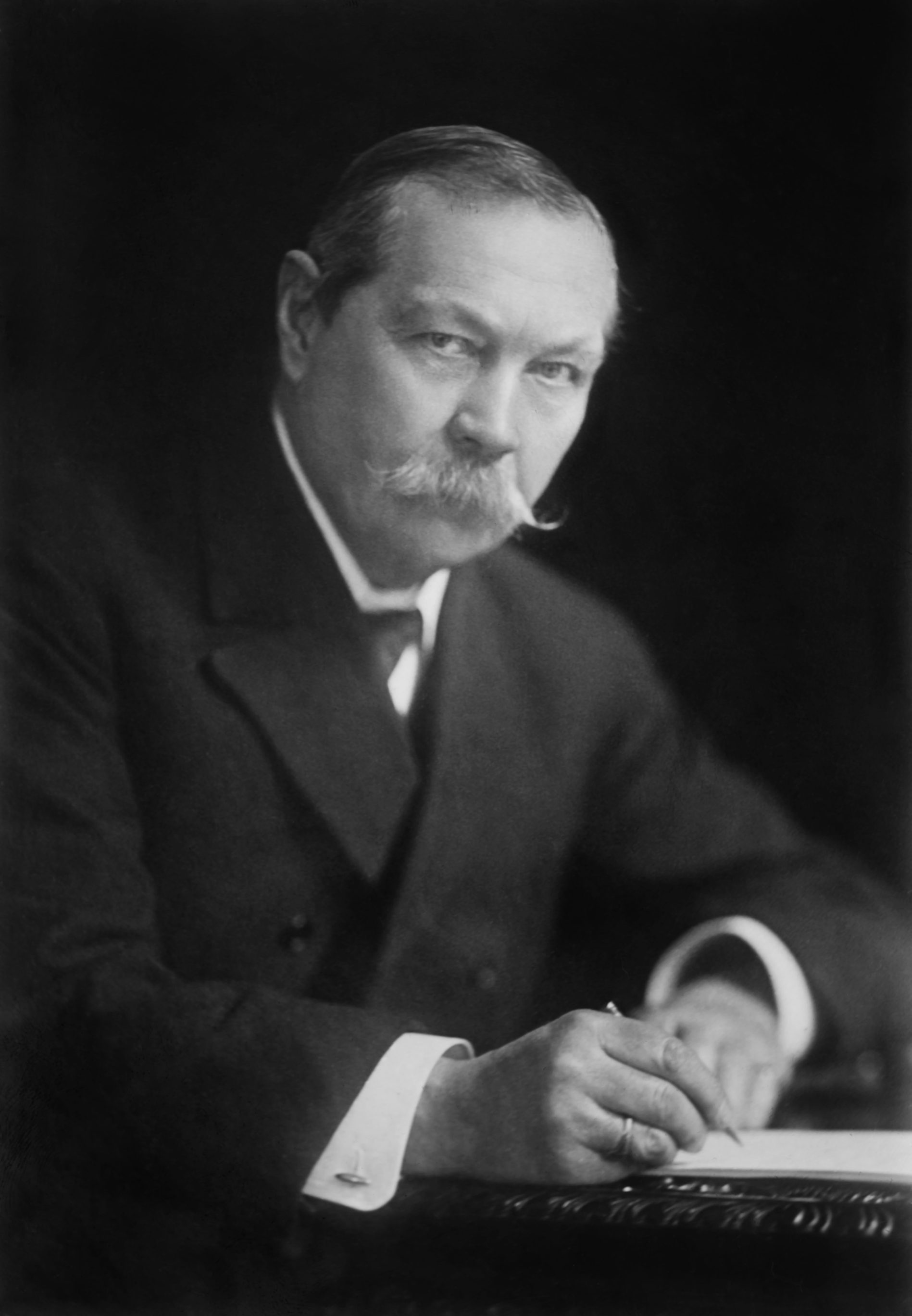
| Arthur Conan Doyle | Information |
|---|---|
| Full Name | Sir Arthur Ignatius Conan Doyle KStJ DL |
| Birthdate | May 22, 1859 |
| Birthplace | Edinburgh, Scotland |
| Death | July 7, 1930 |
| Occupation | Writer, Physician |
| Education | University of Edinburgh Medical School |
| Genre | Detective Fiction, Fantasy, Science Fiction, Historical Novels, Non-fiction |
| Notable Works | Sherlock Holmes series, Professor Challenger stories, Brigadier Gerard stories |
| Spouse | Louisa Hawkins (m. 1885; died 1906), Jean Leckie (m. 1907) |
| Children | 5 (including Adrian and Jean) |
| Literary Legacy | Created the iconic character Sherlock Holmes; Pioneered crime fiction; Contributions to fantasy and science fiction genres; Notable works beyond Sherlock Holmes series |
| Medical Background | Practiced as a physician; Specialized in ophthalmology; Advocated for compulsory vaccination |
| Education Journey | Attended Jesuit preparatory school and Stonyhurst College; Studied medicine at the University of Edinburgh |
| Writing Career | Published numerous short stories, plays, romances, poetry, non-fiction, and historical novels |
| Influences | Inspired by his former university teacher Joseph Bell; Incorporation of deductive reasoning in Holmes’ character |
Real name: Arthur Conan Doyle
Country: Scotland
Date of birth – date of death: May 22, 1859 – July 7, 1930
Era: Late 19th century, early 20th century
Genre: Mystery, History
Sir Arthur Conan Doyle was born in Ireland but subsequently obtained Scottish nationality; he is regarded as the monarch of the detective genre, and his book The Adventures of Sherlock Holmes has become a classic in detective fiction. He was knighted by Queen Elizabeth.
17. Agatha Christie – The author of Death on the Nile
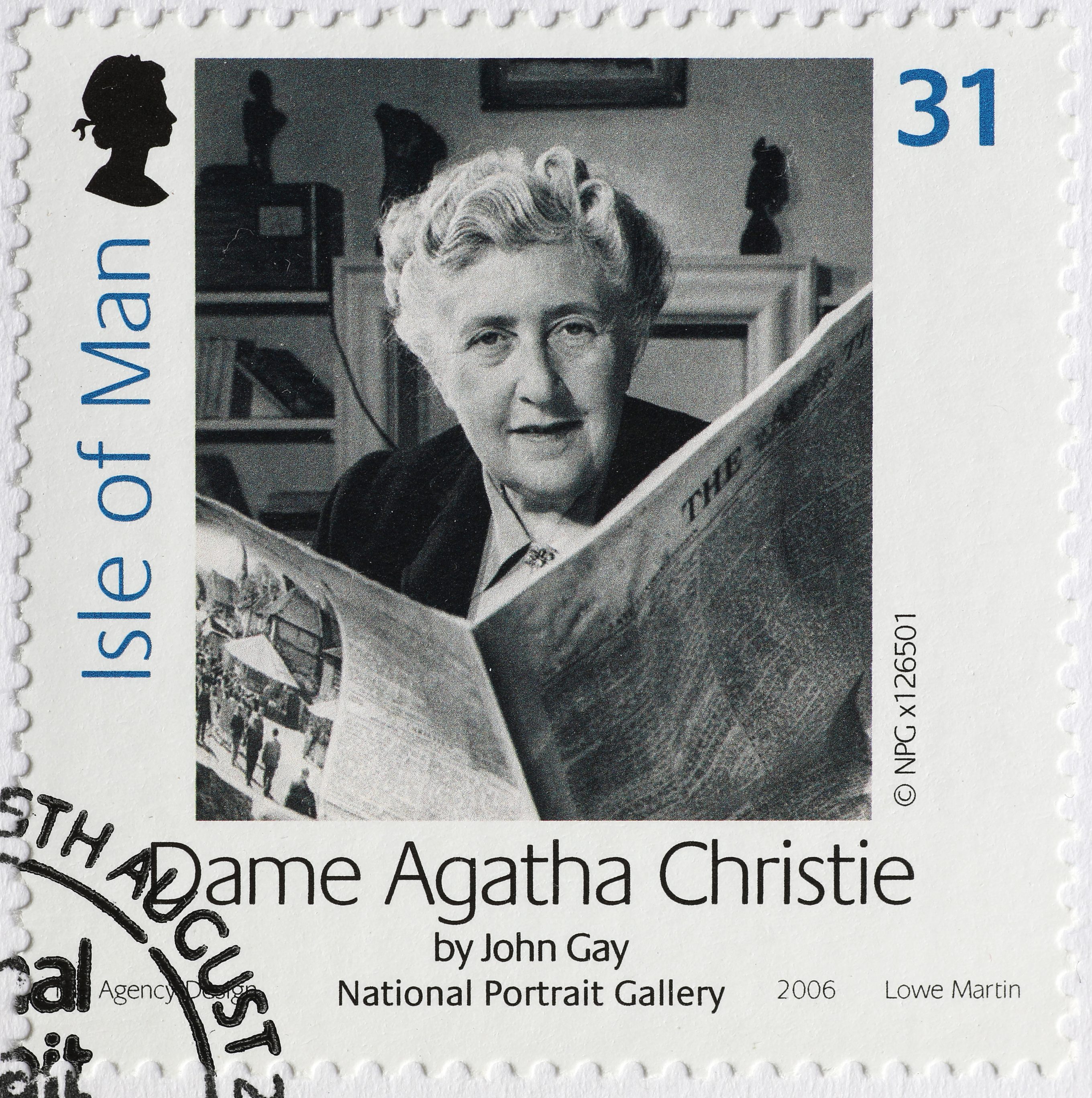
| Agatha Christie | Information |
|---|---|
| Full Name | Dame Agatha Mary Clarissa Christie, Lady Mallowan, DBE (née Miller) |
| Profession | English writer |
| Known For | Writing 66 detective novels and 14 short story collections |
| Fictional Detectives | Hercule Poirot and Miss Marple |
| Notable Work | The Mousetrap – World’s longest-running play |
| Pseudonym | Mary Westmacott (used for six novels) |
| Awards and Honors | Dame (DBE) by Queen Elizabeth II in 1971 |
| Translations | Most-translated individual author according to UNESCO’s Index Translationum |
| Best-Selling Books | And Then There Were None – Approximately 100 million copies sold |
| Longest Initial Run | The Mousetrap – World record for the longest initial run in the West End |
| Personal Life | Married to Archibald Christie (1914-1928) and Max Mallowan (1930 until her death) |
| Children | One daughter, Rosalind Hicks |
| Archaeological Work | Participated in archaeological digs in the Middle East with her second husband, Max Mallowan |
| Educational Background | Home-schooled in Torquay, later attended Miss Guyer’s Girls’ School and education in Paris |
| Literary Beginnings | First novel published in 1920: The Mysterious Affair at Styles, featuring detective Hercule Poirot |
| Legacy | Adaptation of her works in television, radio, video games, and graphic novels; over 30 feature films based on her books |
| Birthdate | September 15, 1890 |
| Birthplace | Torquay, Devon, England |
| Death | January 12, 1976 |
| Place of Death | Winterbrook House, Wallingford, Oxfordshire, England |
Real name: Agatha Mary Clarissa
Country: England
Date of birth – date of death: September 15, 1890 – January 12, 1976
Era: 20th century
Genre: Detective, Romance
If Sherlock Holmes is the king, Agatha Christie is the queen of detective fiction. Just behind Shakespeare, Agatha Christie is the best-selling writer of all time in the detective fiction genre. Agatha Christie is projected to have sold around 1 billion copies in English and 1 billion copies in translations into other languages worldwide.
18. F. Scott Fitzgerald – The author of Tender is the Night
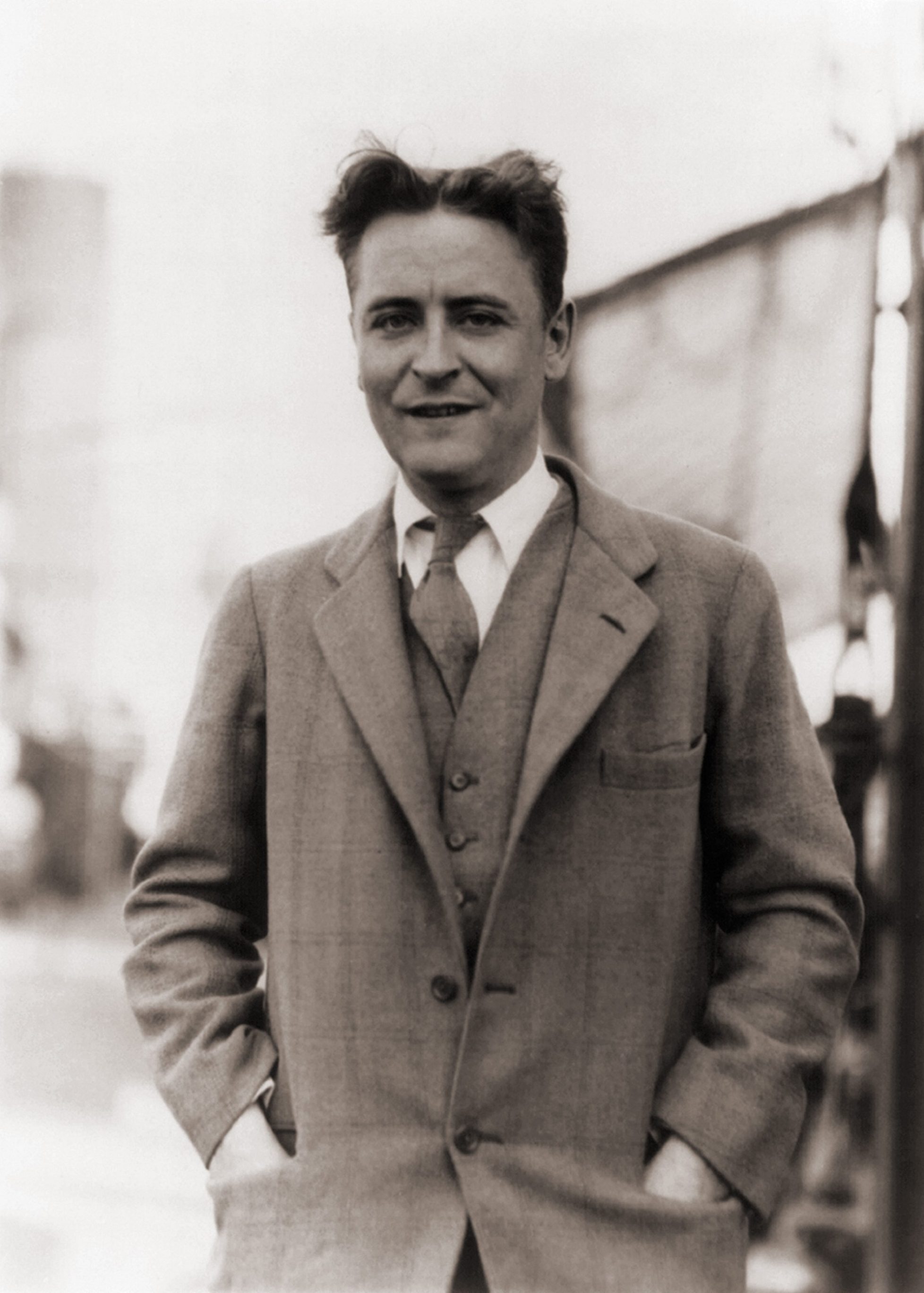
| F Scott Fitzgerald | Information |
|---|---|
| Full Name | F. Scott Fitzgerald – The author of Tender is the Night |
| Birthdate | September 24, 1896 |
| Birthplace | Saint Paul, Minnesota, U.S. |
| Death | December 21, 1940 (aged 44) in Los Angeles, California, U.S. |
| Resting Place | Saint Mary’s Cemetery, Rockville, Maryland, U.S. |
| Occupation | Novelist, essayist, short story writer |
| Notable Works | The Beautiful and Damned, Tales of the Jazz Age, The Great Gatsby, Tender Is the Night |
| Literary Achievements | Widely regarded as one of the greatest American writers of the 20th century |
| Spouse | Zelda Sayre (married in 1920) |
| Children | Frances Scott Fitzgerald |
| Education | Princeton University (attended) |
| Writing Style | Known for depicting the flamboyance and excess of the Jazz Age |
| Notable Connections | Friendships with literary critic Edmund Wilson and writer John Peale Bishop |
| Associated Term | Popularized the term “Jazz Age” in his short story collection |
| Legacy | The Great Gatsby hailed as a “Great American Novel” |
| Additional Information | – Born into a middle-class family in Saint Paul, Minnesota |
Real name: Francis Scott Key Fitzgerald
America
Date of birth – date of death: September 24, 1896 – December 21, 1940
Era: 20th century
Genre: Social Criticism, Social Psychology
Alongside his close friend Ernest Hemingway, F. Scott Fitzgerald is one of the best authors of “The Lost Generation.” Gatsby is said to have shown the opposite of the “American ideal” and the “jazz age” and is one of the “four foundations” of contemporary American literature.
19. J. D. Salinger – The author of The Catcher in the Rye
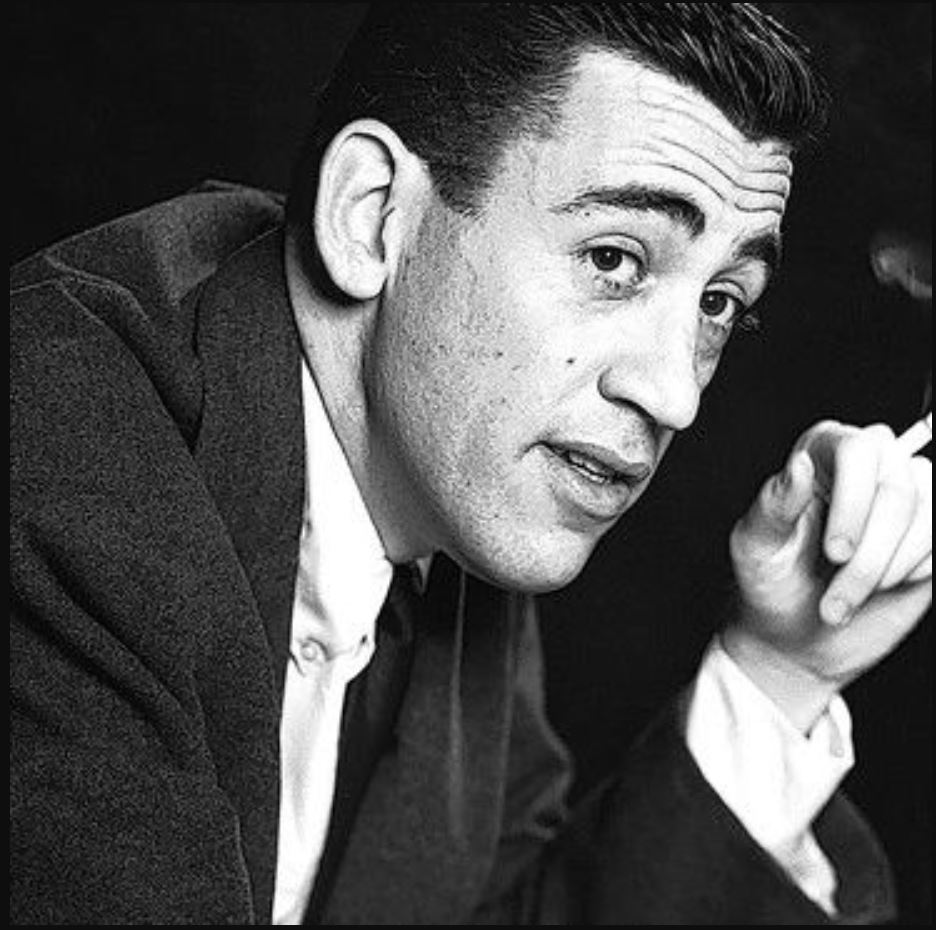
| J D Salinger | Information |
|---|---|
| Full Name | J. D. Salinger – The author of The Catcher in the Rye |
| Birthdate | January 1, 1919 |
| Birthplace | New York City, New York, U.S. |
| Occupation | Author, Writer |
| Language | English |
| Education | New York University, Ursinus College, Columbia University (not graduated) |
| Genre | Coming-of-age story (novel, short story) |
| Notable Works | The Catcher in the Rye, Nine Stories, Franny and Zooey, Raise High the Roof Beam, Carpenters and Seymour: An Introduction |
| Spouses | Sylvia Welter, Claire Douglas, Colleen O’Neill |
| Children | 2, including Matt |
| Period | Contemporary |
| Literary Movement | American Realism, Modernism |
| Subject | Loss of innocence |
| Years Active | From 1940 |
| Additional Information | Salinger published several short stories before serving in World War II. His critically acclaimed story “A Perfect Day for Bananafish” appeared in The New Yorker. The Catcher in the Rye became an immediate popular success, depicting adolescent alienation. Salinger became reclusive, publishing less frequently. He followed up with notable works such as Nine Stories, Franny and Zooey, and Raise High the Roof Beam, Carpenters and Seymour: An Introduction. Salinger’s last published work was the novella Hapworth 16, 1924. He struggled with unwanted attention and legal battles in the 1980s. Salinger’s parents were Sol Salinger and Marie (née Jillich). He attended public schools in Manhattan, McBurney School, and Valley Forge Military Academy. Salinger had an interest in Zen Buddhism. His relationship with The New Yorker began with “A Perfect Day for Bananafish.” He had three marriages: Sylvia Welter, Claire Douglas, and Colleen O’Neill. |
Real name: Jerome David Salinger
Country: America
Date of birth – date of death: January 1, 1919 – January 27, 2010
Era: 20th century
Genre: Autobiographical Fiction, Social
J. D. Salinger is an American author whose personality is distinct. The popularity of his works led to a more reclusive lifestyle, and he ceased composing in 1965. His most successful novel, “The Catcher in the Rye,” is among the “four pillars” of modern American literature. However, it has received much criticism from critics and has been censored and cut out in libraries in the United States.
20. Emily Bronte – The author of Wuthering Heights
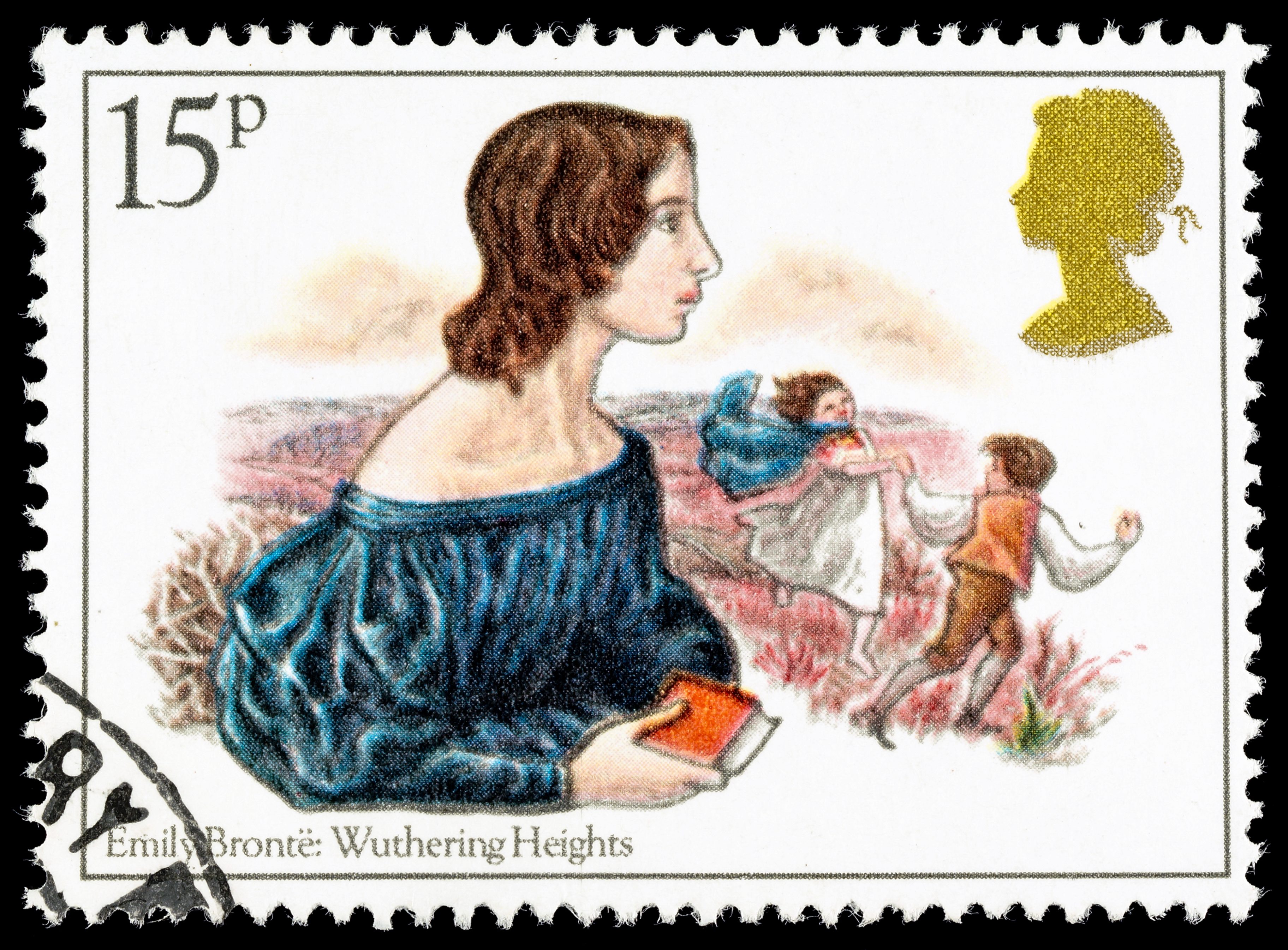
| Ellis Bell | Information |
|---|---|
| Full Name | Emily Brontë – The author of Wuthering Heights |
| Birthdate | July 30, 1818 |
| Birthplace | Thornton, Yorkshire, England |
| Death | December 19, 1848 |
| Resting Place | St Michael and All Angels’ Church, Haworth, Yorkshire |
| Pen Name | Ellis Bell |
| Occupation | Novelist, Poet, Governess |
| Education | Cowan Bridge School, Lancashire |
| Notable Works | Wuthering Heights |
| Literary Movement | Romantic Period |
| Parents | Patrick Brontë, Maria Branwell |
| Siblings | Charlotte Brontë, Anne Brontë, Branwell Brontë |
| Childhood Influences | Development of literary talents, love for animals |
| Writing Style | Poetic genius, exploration of romantic themes |
| Schooling | Clergy Daughters’ School, homeschooling by father and aunt |
| Travels | Brief attendance at Roe Head Girls’ School, visit to Brussels |
| Publishing | Co-author of “Poems by Currer, Ellis, and Acton Bell” |
| Legacy | Mysterious and reclusive nature, lasting impact of Wuthering Heights |
Real name: Emily Jane Bronte
Country: England
Date of birth – date of death: July 30, 1818 – December 19, 1848
Era: 19th century
Genre: Humanities, Love
Wuthering Heights is the sole book written by Emily Bronte, although it is regarded as one of the greatest literary works. In addition to the novel Wuthering Heights, Emily Bronte also wrote poetry, but very few poems have been preserved.
21. Vladimir Nabokov
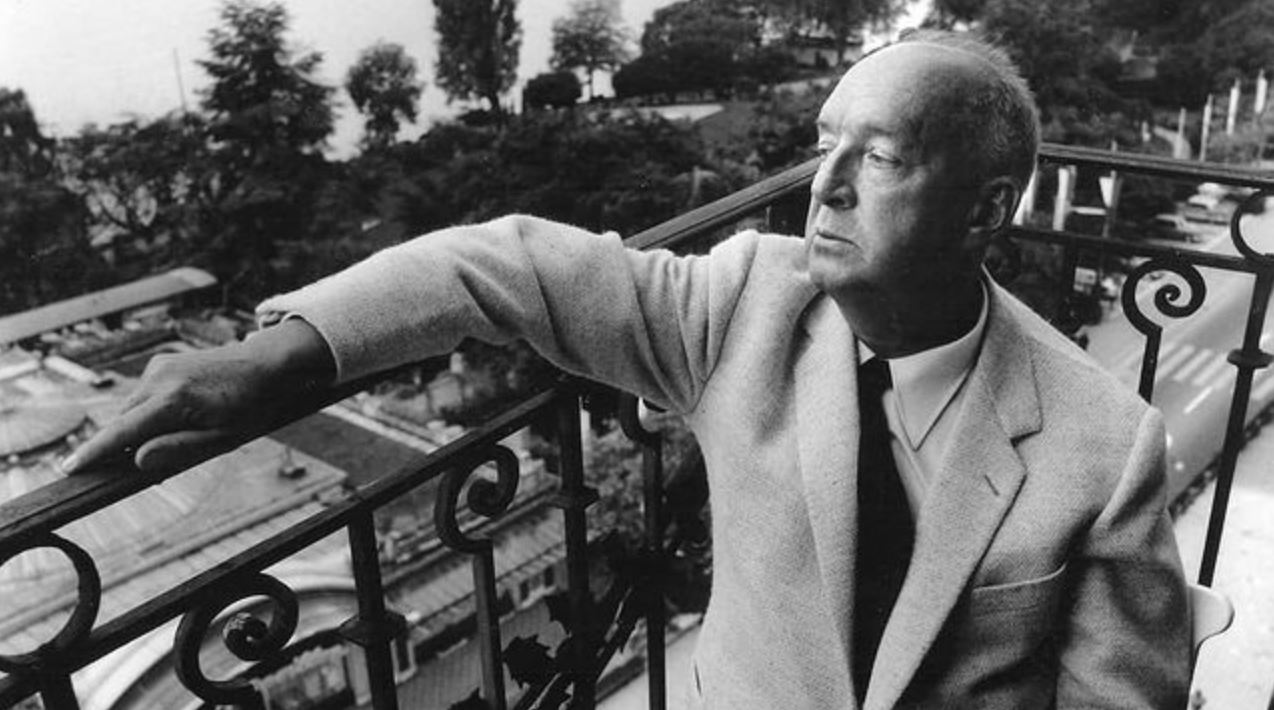
| Vladimir Nabokov | Information |
|---|---|
| Full Name | Vladimir Vladimirovich Nabokov |
| Native Name | Владимир Владимирович Набоков |
| Pen Name | Vladimir Sirin |
| Nationality | Russian Empire → United States, Switzerland |
| Occupation | Novelist, poet, translator, entomologist |
| Language | Russian, English, French |
| Education | BA in French literature |
| Alma Mater | University of Cambridge |
| Period | Contemporary (20th century) |
| Genres | Novel, poetry, short story, drama, translation, autobiography, non-fiction |
| Literary Movement | Modernism, postmodernism |
| Years Active | From 1916 |
| Employers | Wellesley College, Cornell University |
| Notable Works | Lolita, Pale Fire, Speak, Memory |
| Spouse | Véra Nabokova |
| Children | Dmitri Nabokov |
| Expertise | Lepidopterist, composer of chess problems |
| Family Background | Descendant of Russian nobility |
| Childhood and Education | Raised in Saint Petersburg and Vyra; trilingual in Russian, English, and French; studied at the University of Cambridge |
| Exile and Career | Achieved recognition as a writer in Russian émigré community; settled in the United States; joined the staff of Wellesley College; founder of Wellesley’s Russian department |
| Later Life | Settled in Montreux, Switzerland; achieved international acclaim writing in English; known for novels like Lolita, Pale Fire, and Speak, Memory |
| Legacy | Regarded as one of the most important writers of the 20th century |
Real name: Vladimir Vladimirovich Nabokov
Country: Russia
Date of birth – date of death: April 22, 1899 – July 2, 1977
Era: 20th century
Genre: Comedy, Educational, Psychological
Vladimir Nabokov is one of the most famous Russian writers of the 20th century with his controversial work Lolita. Later, Lolita became a world-famous novel, a “classic classic document in the world of psychiatric medicine”, containing a deep meaning of education and protection of minors.
22. Harper Lee – The author of To Kill the Mockingbird
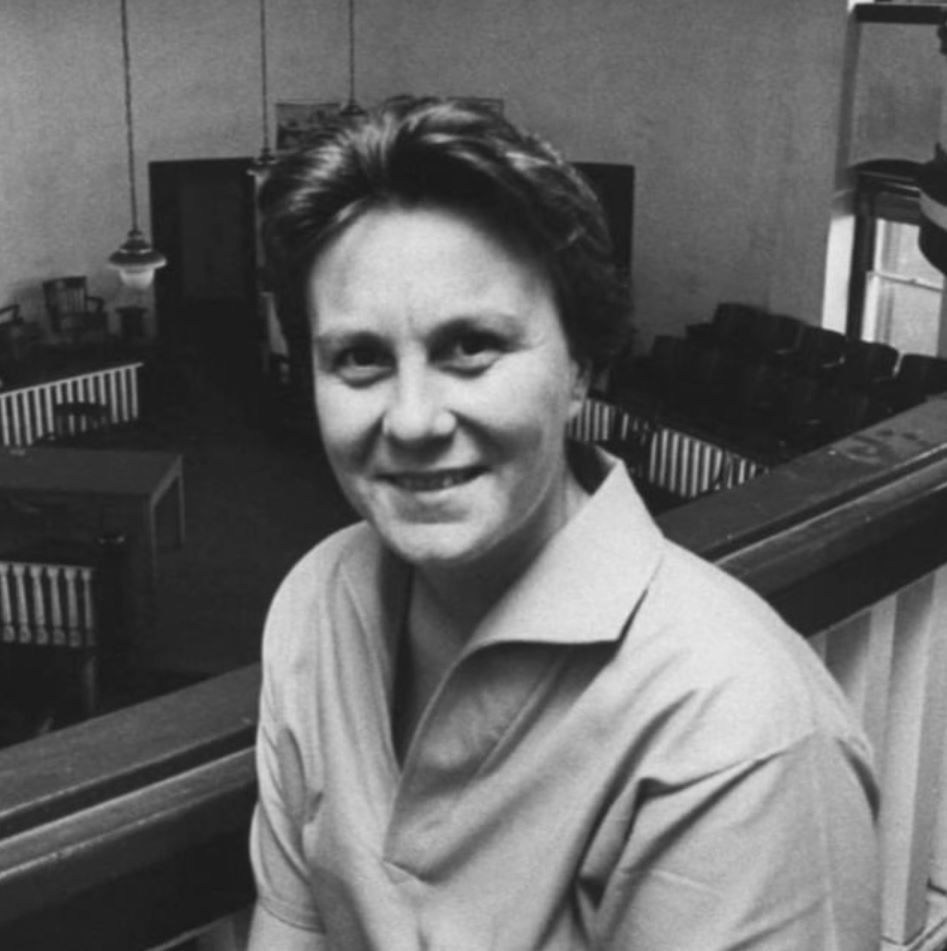
| Harper Lee | Information |
|---|---|
| Full Name | Harper Lee – The author of To Kill a Mockingbird |
| Birthdate | April 28, 1926 |
| Birthplace | Monroeville, Alabama, U.S. |
| Death | February 19, 2016 |
| Occupation | Novelist |
| Education | University of Alabama |
| Genre | Literature, Fiction |
| Notable Works | To Kill a Mockingbird (1960) Go Set a Watchman (2015) |
| Literary Movement | Southern Gothic |
| Awards and Recognition | Pulitzer Prize for Fiction (1961) Presidential Medal of Freedom (2007) |
| Contributions | Assisted Truman Capote in research for In Cold Blood |
| Family Background | Youngest of four children Related to Confederate General Robert E. Lee and a member of the prominent Lee family |
| Connection with Capote | Childhood friend and neighbor of Truman Capote |
| Privacy and Legacy | Maintained privacy and avoided public appearances Posthumously published work: Go Set a Watchman (2015) |
Real name: Nelle Harper Lee
Country: America
Date of birth – date of death: April 28, 1926 – February 19, 2016
Era: 20th century
Genre: Semi-autobiographical, Social, Southern Gothic
Harper Lee is an American writer, lawyer, and journalist. During her career, she wrote only two novels, but one of them was To Kill a Mockingbird, with content about racism; together with The Great Gatsby, it became one of the “four pillars” of modern American literature.
23. JK. Rowling – The author of Harry Potter series
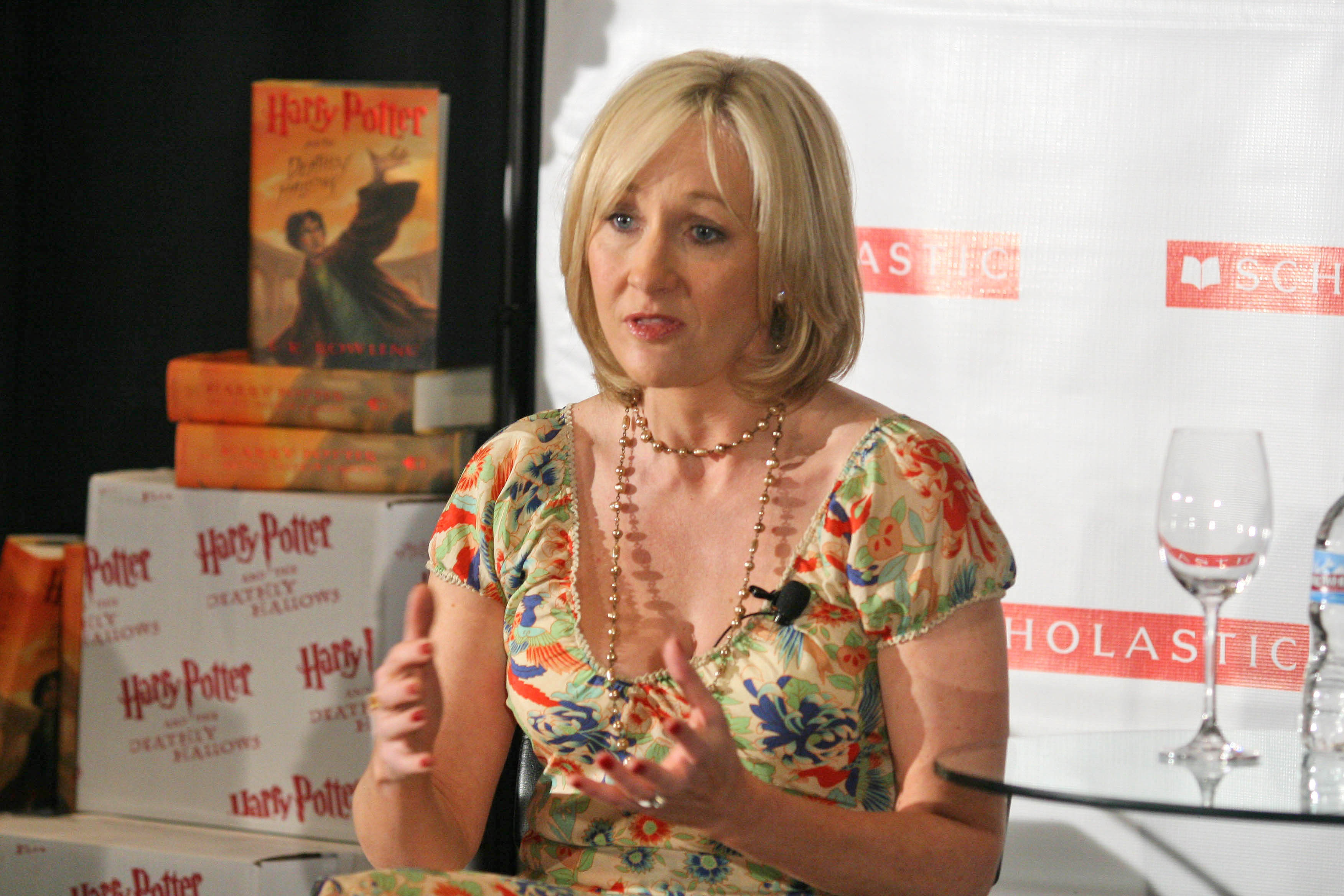
| J K Rowling | Information |
|---|---|
| Full Name | JK. Rowling – The author of the Harry Potter series |
| Birthdate | July 31, 1965 (age 57) |
| Birthplace | Yate, Gloucestershire, England |
| Pen Name | J. K. Rowling, Robert Galbraith |
| Occupation | Author, philanthropist |
| Notable Works | Harry Potter series |
| Genres | Fantasy, drama, young adult fiction, crime fiction |
| Years Active | 1997-present |
| Education | University of Exeter |
| Famous For | Creating the Harry Potter series, which has sold over 600 million copies worldwide |
| Philanthropic Activities | Co-founder of the charity Lumos, established the Volant Charitable Trust |
| Awards and Honors | OBE, Companion of Honour |
| Political Stance | Opposed Scottish independence and Brexit |
| Controversies | Criticized for her views on transgender rights |
Real name: Joanne Rowling
Country: England
Date of birth: July 31, 1965
Era: Late 20th century, early 21st century
Genre: Fantasy, drama, young adult, fiction, crime fiction
Joanne Rowling, commonly known by the pen name J. K. Rowling, is an English writer, philanthropist, film and television producer, and screenwriter.
J. K. Rowling is widely recognized as the creator of the best-selling book series of all time, the Harry Potter fantasies, which have together sold over 500 million copies throughout the world.
Using the pen name Robert Galbraith, she also wrote crime fiction. Though she became famous for her contributions to the Harry Potter series, that success cast such a lengthy shadow that she could never recover.
She is also the first writer to become a billionaire by publishing books. Anyway, JK Rowling is still a great writer.
24. Jack Kerouac – The author of On the Road
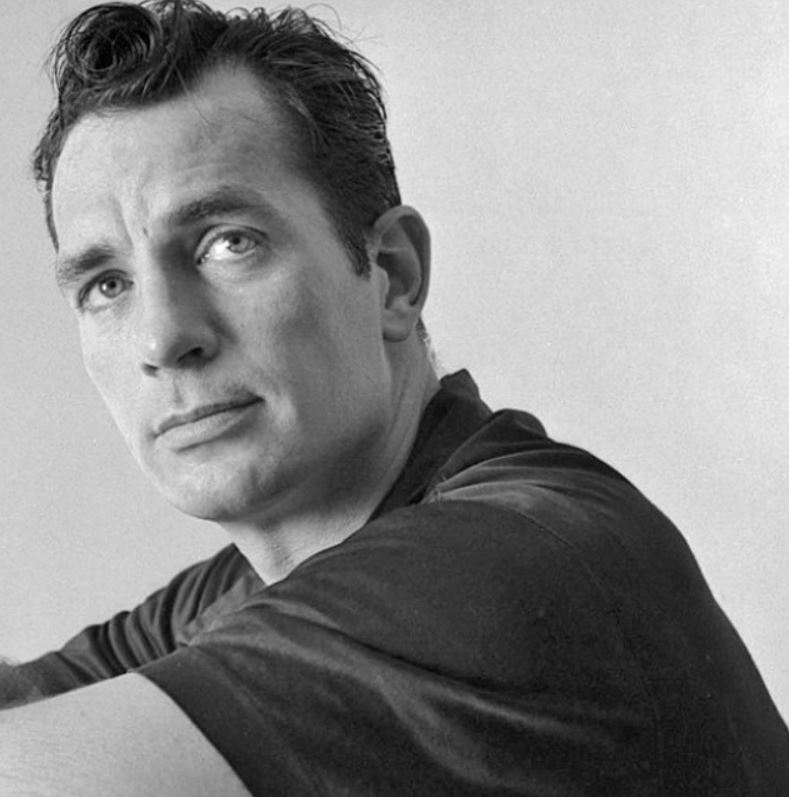
| Jack Kerouac | Information |
|---|---|
| Full Name | Jack Kerouac – The author of On the Road |
| Birth | March 12, 1922, Lowell, Massachusetts, U.S. |
| Death | October 21, 1969, St. Petersburg, Florida, U.S. |
| Occupation | Novelist, Poet |
| Alma Mater | Columbia University |
| Literary Movement | Beat Generation, Franco American |
| Notable Works | On the Road, The Dharma Bums, Big Sur, Desolation Angels |
| Spouse | Edie Parker (m. 1944; div. 1948), Joan Haverty (m. 1950; div. 1951), Stella Sampas (m. 1966) |
| Children | Jan Kerouac |
| Legacy | Influential figure in the Beat Generation, inspiring cultural icons like Bob Dylan, the Beatles, Jerry Garcia, and the Doors |
| Writing Style | Known for his spontaneous prose |
| Themes | Catholic spirituality, jazz, travel, promiscuity, life in New York City, Buddhism, drugs, poverty |
| Cause of Death | Abdominal hemorrhage due to a lifetime of heavy drinking |
| Published Works | 12 novels and numerous poetry volumes |
| Unseen Works | Several previously unpublished works have been published |
| Language Skills | Bilingual in English and French |
| Childhood Tragedy | Loss of his brother Gerard at a young age |
| Athletics | Talented football player and wrestler |
| Scholarships | Offered scholarships from Boston College, Notre Dame, and Columbia University |
| Circle of Influence | Associated with Allen Ginsberg, William S. Burroughs, Neal Cassady, and others |
| Military Service | Served in the United States Merchant Marine and United States Navy Reserves |
| First Published Novel | The Town and the City (1950) |
| Posthumous Recognition | Literary prestige has grown since his death |
Real name: Jack Kerouac
Country: America
Date of birth – date of death: March 12, 1922 – October 21, 1969
Era: 20th century
Genre: Religion, Society, Travel, Music
Jack Kerouac is the last name with the work On the Road in the “four pillars” of modern American literature. He is regarded as the antithesis of literary iconography. At 47, Jack Kerouac died of internal bleeding caused by alcohol abuse.
25. Miguel de Cervantes The author of Don Quixote
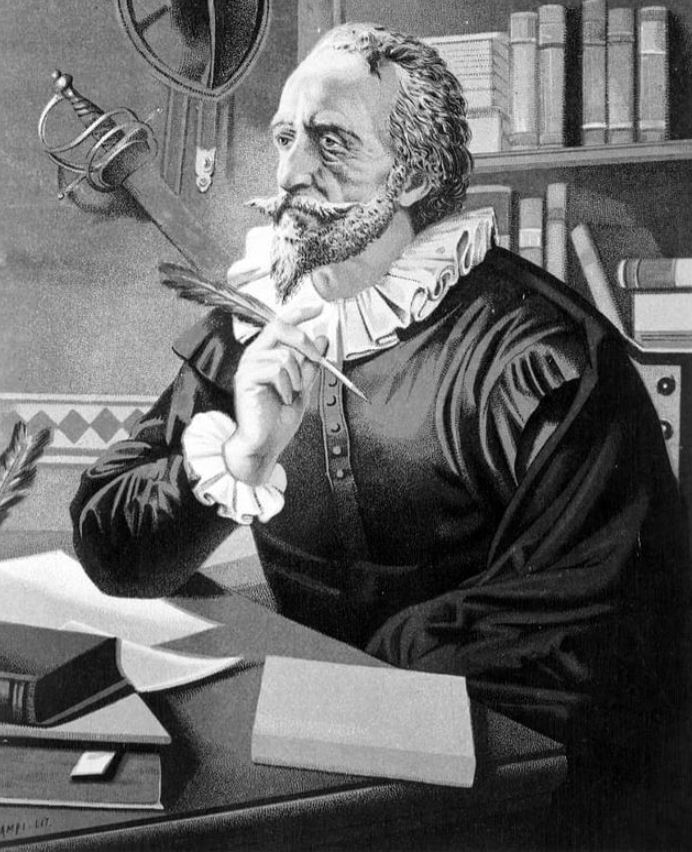
| El Manco de | Information |
|---|---|
| Full Name | Miguel de Cervantes Saavedra |
| Birthdate | 29 September 1547 (assumed) |
| Birthplace | Alcalá de Henares, Spain |
| Nationality | Spanish |
| Occupation | Writer, soldier, tax collector |
| Literary Works | – Don Quixote |
| Spouse | Catalina de Salazar y Palacios |
| Children | – Isabel (illegitimate) |
| Notable Nickname | El Manco de Lepanto (The one-handed man of Lepanto) |
| Language | Spanish |
| Literary Impact | – Widely regarded as the greatest writer in the Spanish language |
Real name: Miguel de Cervantes y Saavedra
Country: Spain
Date of birth – date of death: September 29, 1547 – April 23, 1616
Era: 16th century
Genre: Satire, satire
Miguel de Cervantes is a Spanish writer, poet, and playwright, best known for his classic Don Quixote. Don Quixote is the first novel written in modern European languages. The work is considered to have a critical position in European literature.
26. Alexandre Dumas – The author of The Three Musketeers
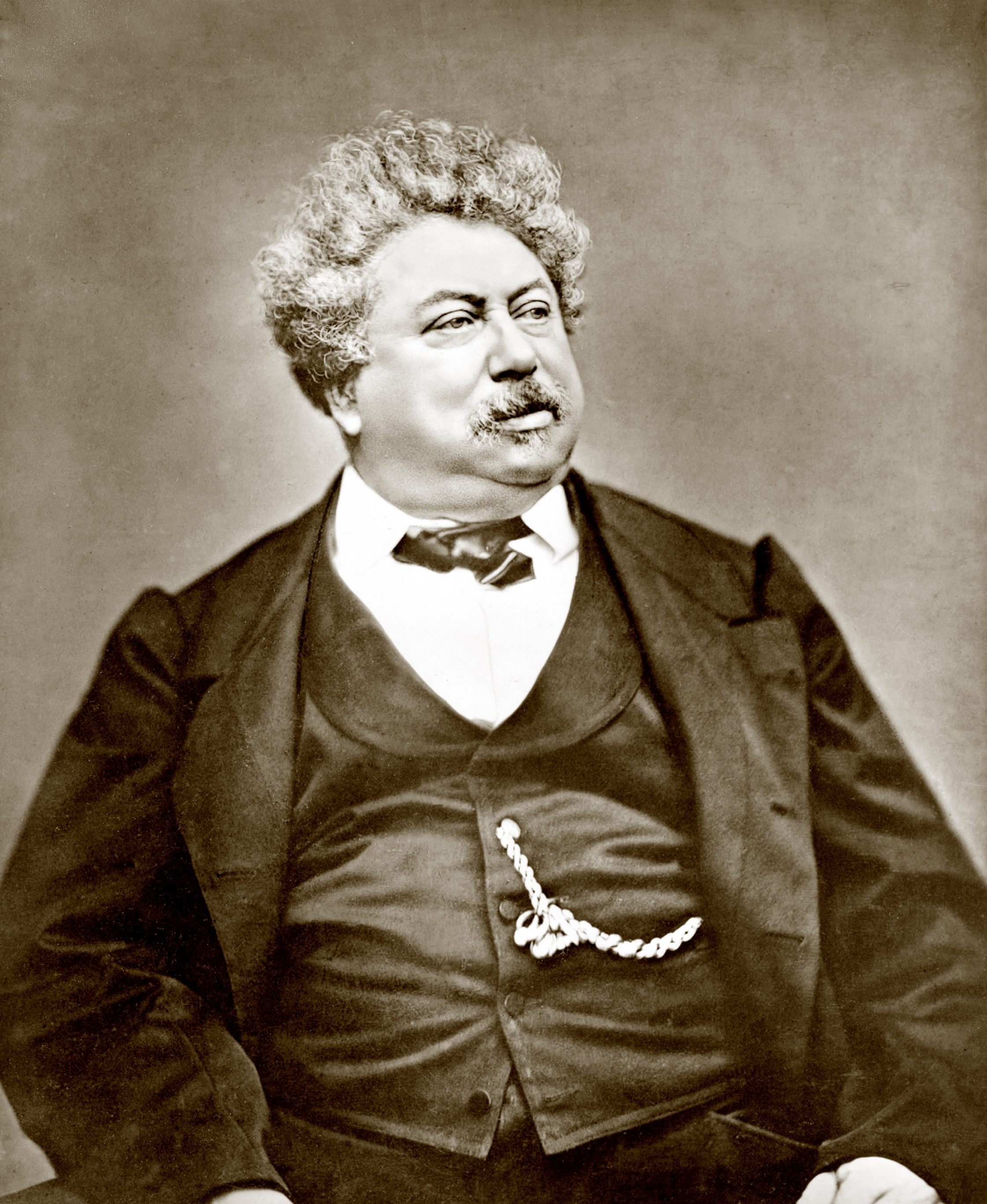
| Alexandre Dumas | Information |
|---|---|
| Full Name | Alexandre Dumas – The author of The Three Musketeers |
| Birthdate | July 24, 1802 |
| Birthplace | Villers-Cotterêts, Picardy, France |
| Died | December 5, 1870 (aged 68) |
| Occupation | Novelist, playwright |
| Literary Movement | Romanticism and historical fiction |
| Notable Works | The Three Musketeers, The Count of Monte Cristo |
| Spouse | Ida Ferrier (married in 1840; died in 1859) |
| Children | Alexandre Dumas fils (son) |
| Parents | Thomas-Alexandre Dumas |
| Contributions | Founded the Théâtre Historique in Paris, prolific playwright and novelist |
| Cultural Impact | Widely read French author, translated into many languages |
| Personal Life | Known for numerous affairs and alleged illegitimate children |
| Legacy | Regarded as one of the best writers of all time, influential in Romanticism and historical fiction |
Real name: Dumas Davy de la Pailleterie
Country: France
Date of birth – date of death: 24/7/1802 – December 5, 1870
Era: 19th century
Genre: Romanticism, History, Adventure
Alexandre Dumas is a French writer with strong creative power: about 250 works, including 100 novels and 91 plays; the rest are memoirs, memoirs, reportages, etc. Both “The Count of Monte Cristo” and “The Three Musketeers” are considered to be among his most well-known works. These are all famous literary works and have been made into movies frequently.
27. Oscar Wilde – The author of The Painting of Dorian Gray
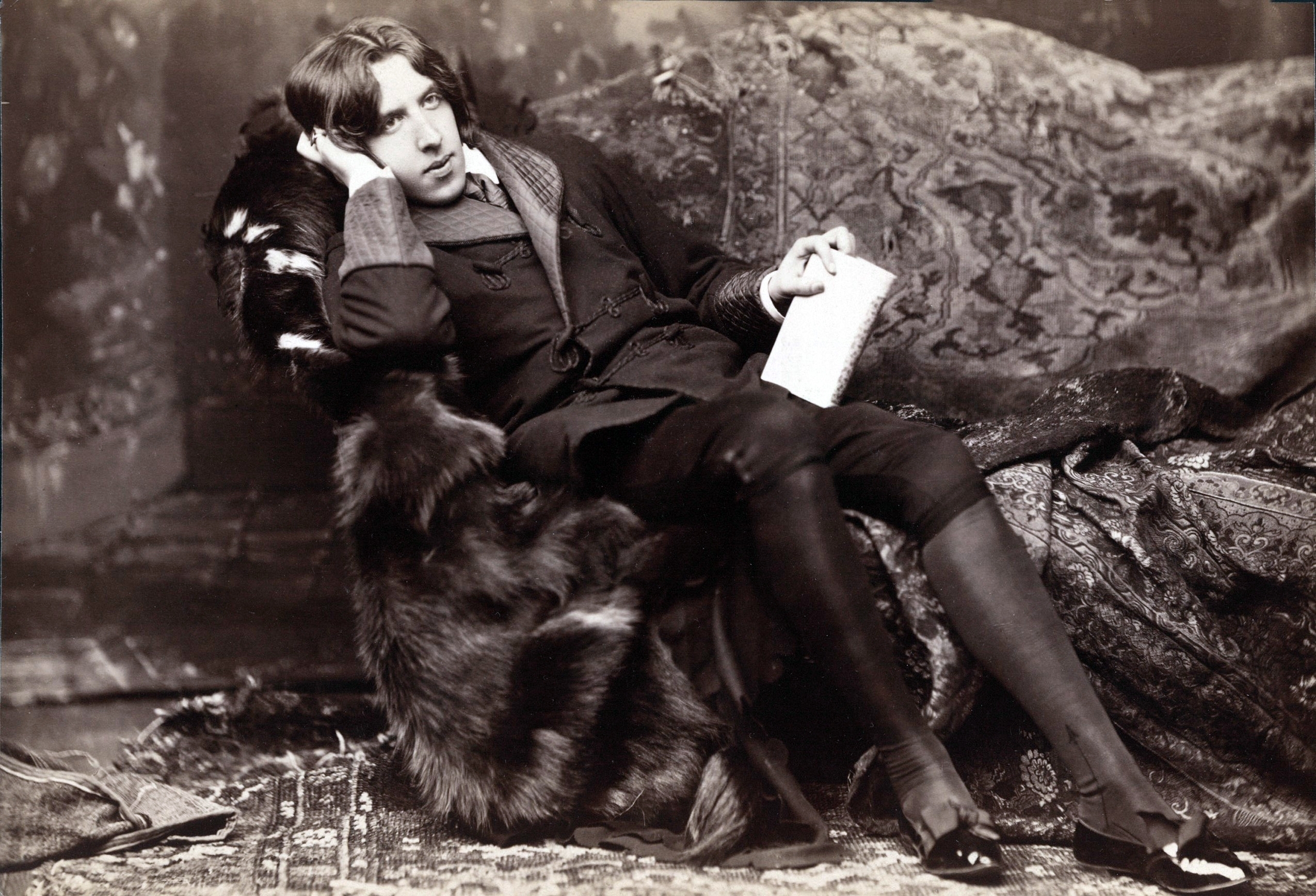
| Oscar Wilde | Information |
|---|---|
| Full Name | Oscar Fingal O’Fflahertie Wills Wilde |
| Birthdate | October 16, 1854 |
| Birthplace | Dublin, Ireland |
| Occupation | Poet, Playwright |
| Notable Works | The Picture of Dorian Gray, The Importance of Being Earnest |
| Languages | English, French, German |
| Alma Mater | Trinity College Dublin, Magdalen College, Oxford |
| Period | Victorian era |
| Literary Movement | Aestheticism, Decadent movement |
| Conviction | Criminal conviction for gross indecency |
| Death | November 30, 1900 (aged 46), Paris, France |
| Spouse | Constance Lloyd (m. 1884; died 1898) |
| Children | Cyril Holland, Vyvyan Holland |
| Parents | Sir William Wilde, Jane, Lady Wilde |
| Early Influences | Anglo-Irish intellectuals, exposure to French and German |
| Dramatic Works | Salome, four society comedies |
| Legal Troubles | Prosecuted the Marquess of Queensberry, arrested and tried for gross indecency |
| Imprisonment | Two years’ hard labor, wrote De Profundis during imprisonment |
| Exile | Left for France after release, never returned to Ireland or Britain |
Real name: Oscar Fingal O’Flahertie Wills Wilde
Country: Ireland
Date of birth – date of death: October 16, 1854 – November 30, 1900
Era: Late 19th century, 20th century
Genre: Aesthetics, Art for Art’s sake
Oscar Wilde is a famous writer and poet. He greatly influenced European aesthetics and was the first to explain the movement “Art for art’s sake,” which later contrasted with Victor Hugo’s “Art for life’s sake” movement. His most famous work is The Painting of Dorian Gray.
28. Gabriel Garcia Marquez – The author of One Hundred Years of Solitude
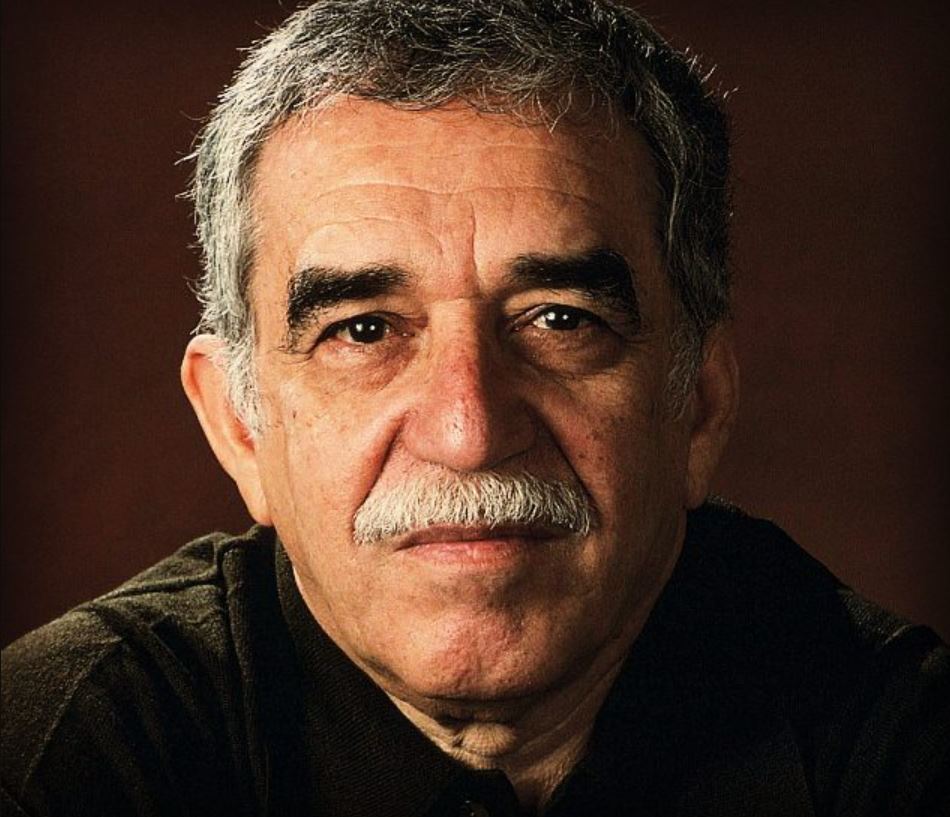
| Gabriel Garcia Marquez | Information |
|---|---|
| Full Name | Gabriel José de la Concordia García Márquez |
| Birthdate | March 6, 1927 |
| Birthplace | Aracataca, Colombia |
| Nationality | Colombian |
| Occupation | Novelist, short-story writer, screenwriter, journalist |
| Notable Works | One Hundred Years of Solitude, Chronicle of a Death Foretold, Love in the Time of Cholera |
| Literary Movement | Magic realism, Latin American Boom |
| Notable Awards | Neustadt International Prize for Literature, Nobel Prize in Literature |
| Spouse | Mercedes Barcha Pardo (married in 1958) |
| Children | 2 sons – Rodrigo and Gonzalo |
| Writing Style | Popularized magic realism, blending magical elements with ordinary situations |
| Significant Influence | Widely regarded as one of the most significant authors of the 20th century |
| Legacy | Most-translated Spanish-language author, known for exploring the theme of solitude |
| Presidential Tribute | Juan Manuel Santos, the president of Colombia, called him “the greatest Colombian who ever lived” |
Real name: Gabriel Jose Garcia Marquez
Country: Columbia
Date of birth – date of death: March 6, 1928 – April 17, 2014
Era: 20th century, early 21st century
Genre: Fantasy Reality
Gabriel Garcia Marquez is the most excellent writer of South America, representing Magical Realism with his typical work One Hundred Years of Solitude. He won the Neustadt International Literary Prize in 1972 and the Nobel Prize in Literature in 1982.
29. O’Henry – The author of The Last Leaf
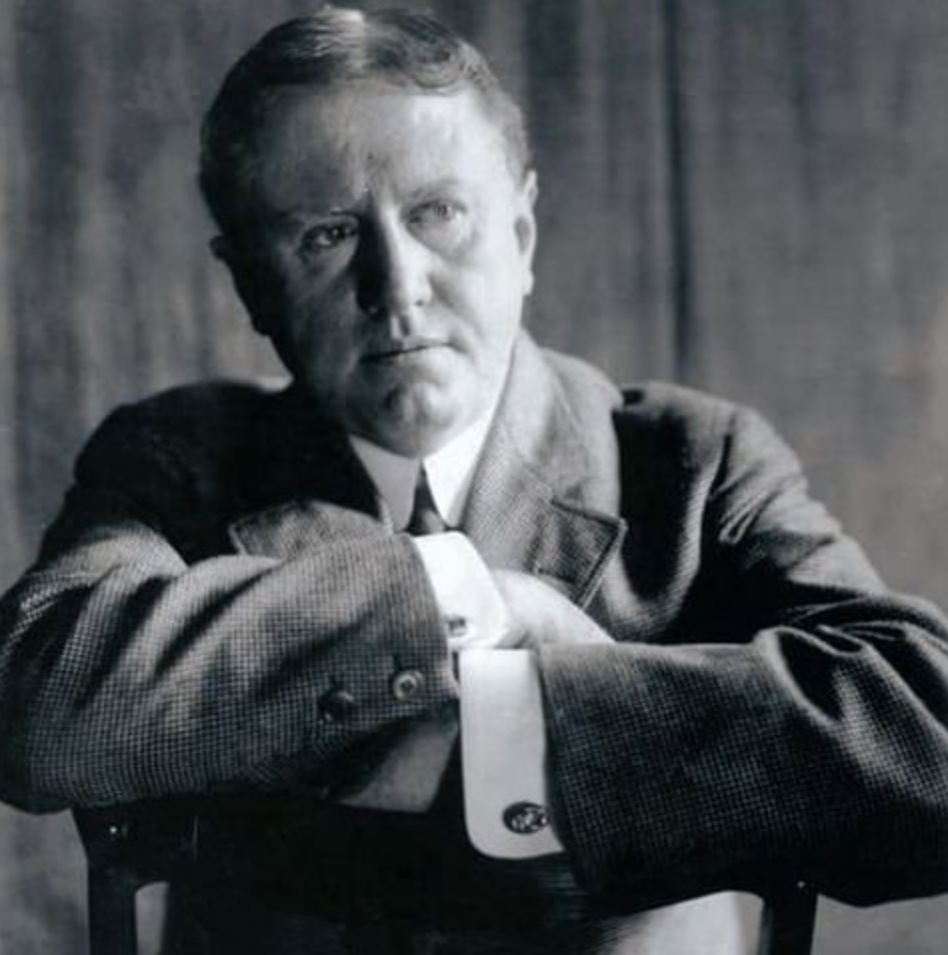
| O Henry The | Information |
|---|---|
| Full Name | O’Henry – The author of “The Last Leaf” |
| Country | United States |
| Language | English |
| Genre | Short story |
| Published in | The Trimmed Lamp and Other Stories |
| Publication Date | 1907 |
| Original Publication | New York World |
| Setting | Greenwich Village, New York City |
| Theme | Hope, resilience, sacrifice |
| Main Characters | Old artist, Young neighboring artist |
| Plot Summary | In Greenwich Village during a pneumonia epidemic, an old artist saves the life of a young artist by painting a leaf on the wall, giving her hope. The artist’s health improves, but the old artist dies from pneumonia. |
| Adaptations | “The Last Leaf” has been frequently adapted for stage and screen. |
| Legacy | Greenwich Village has transformed from a poor literati settlement to a renowned art center and tourist attraction. |
Real name: William Sydney Porter
Country: America
Date of birth – date of death: September 1, 1862 – June 5, 1910
Era: 19th century, early 20th century
Genre: Life, society, humanities, satire
O’Henry is an American writer known for his short stories. O’Henry’s short stories are often rustic, everyday life tells about ordinary people in society, but there are fascinating, tricky, sometimes wacky plots in which they are full of humanity or social satire. His most famous short story is The Last Leaf.
30. Jane Austen – The author of Pride and Prejudice
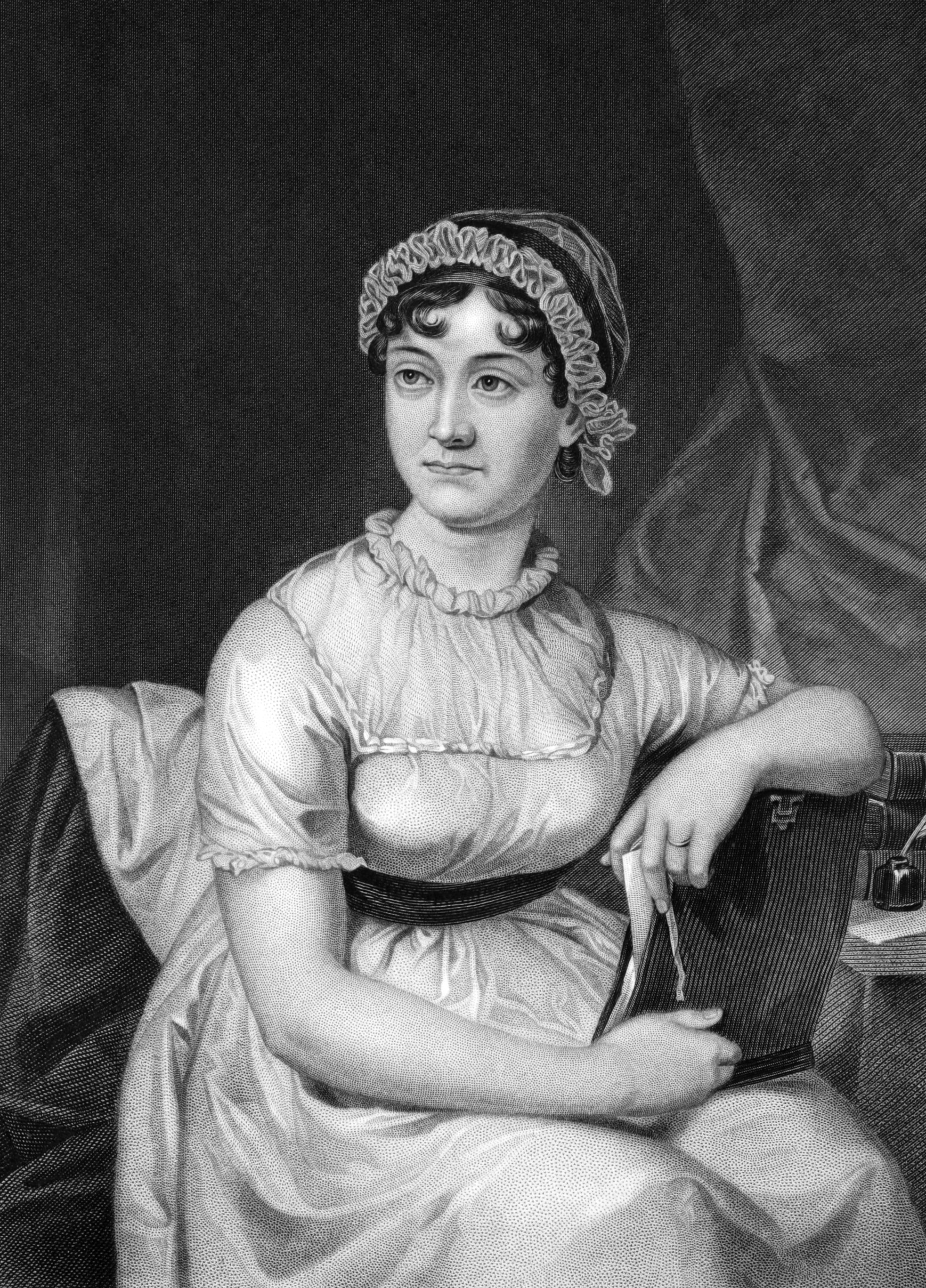
| Jane Austen | Information |
|---|---|
| Full Name | Jane Austen – The author of Pride and Prejudice |
| Portrait | c. 1810 |
| Born | 16 December 1775, Steventon Rectory, Hampshire, England |
| Died | 18 July 1817, Winchester, Hampshire, England |
| Resting Place | Winchester Cathedral, Hampshire |
| Literary Themes | Critique of British landed gentry, Women’s dependence on marriage, Social commentary, Realism, Irony |
| Major Novels | Sense and Sensibility, Pride and Prejudice, Mansfield Park, Emma, Northanger Abbey, Persuasion |
| Published Works | Sense and Sensibility (1811), Pride and Prejudice (1813), Mansfield Park (1814), Emma (1815) |
| Literary Influence | Transition to 19th-century literary realism, Inspiration for critical essays and films |
| Literary Reputation | Gained wide acclaim and readership after her death |
Real name: Jane Austen
Country: England
Year of birth-year of death: December 16, 1775 – July 18, 1817
Era: Late 18th century, early 19th century
Genre: Humanities, Love, Culture, Society
Jane Austen is Britain’s most respected female writer, with her classic work Pride and Prejudice. The character Elizabeth in Pride and Prejudice, with her demanding, witty, and sensitive personality, is considered the most charismatic character in English literature.
